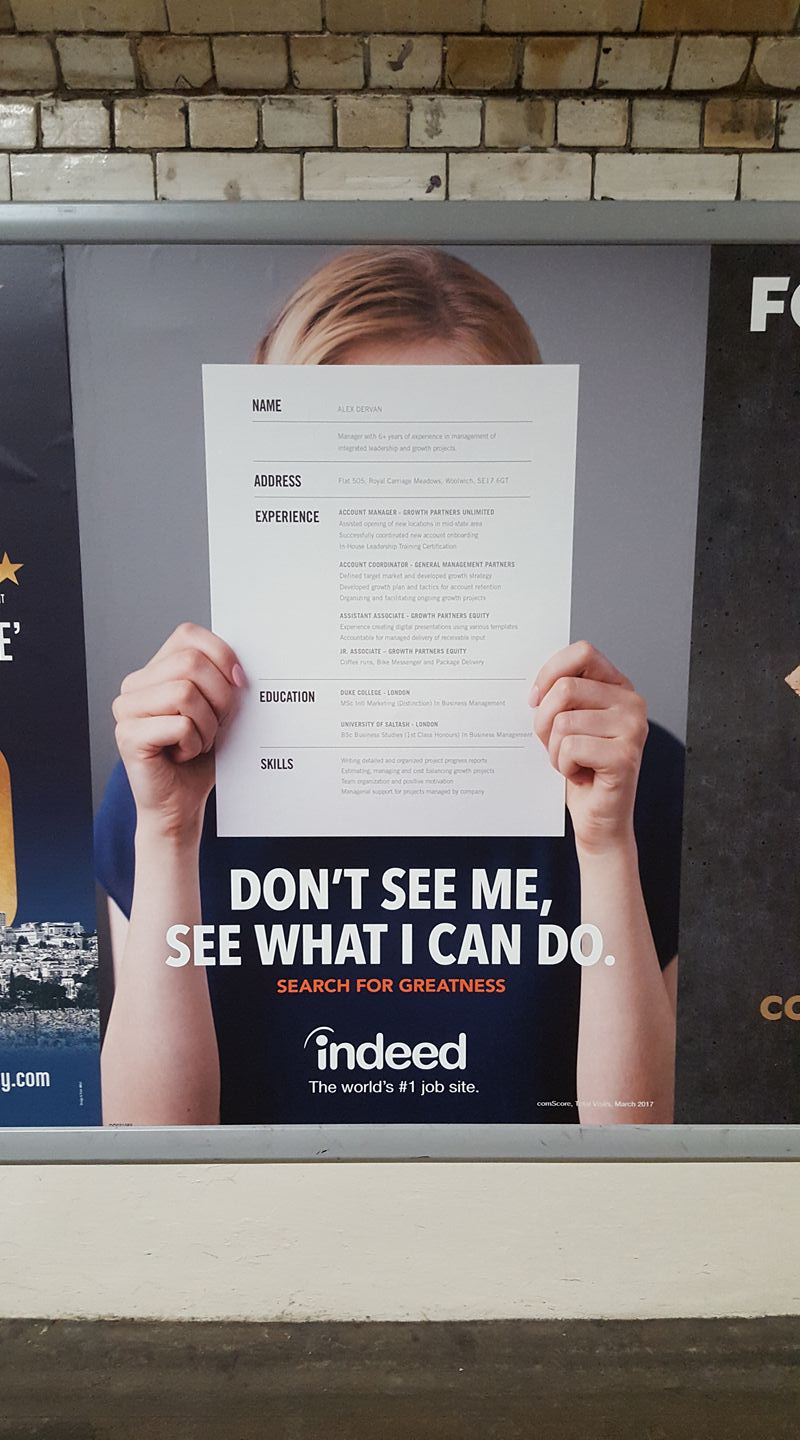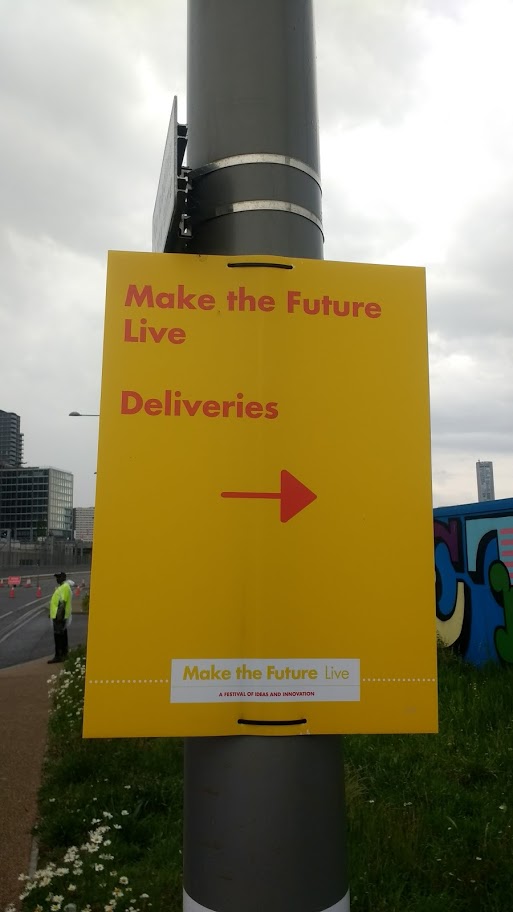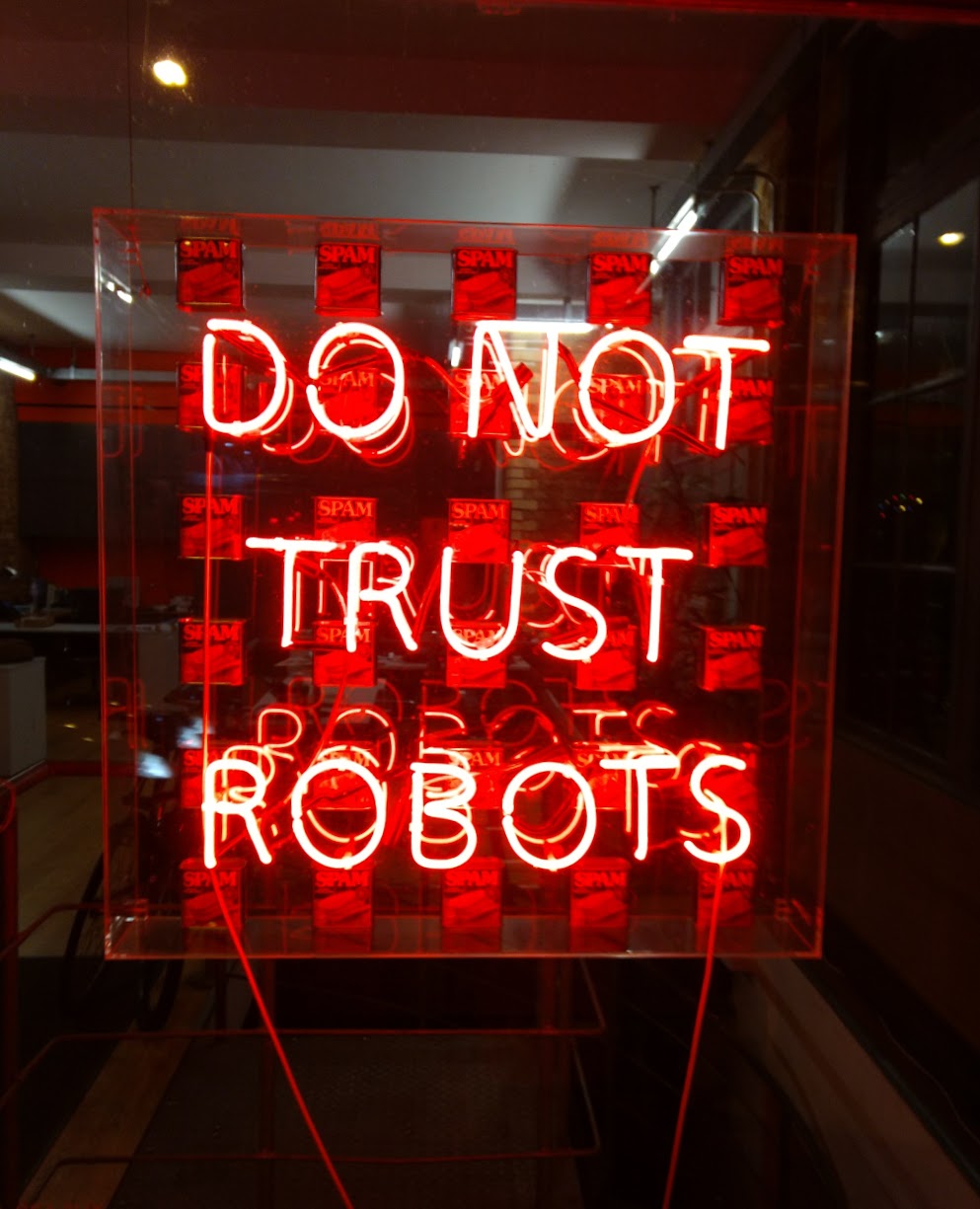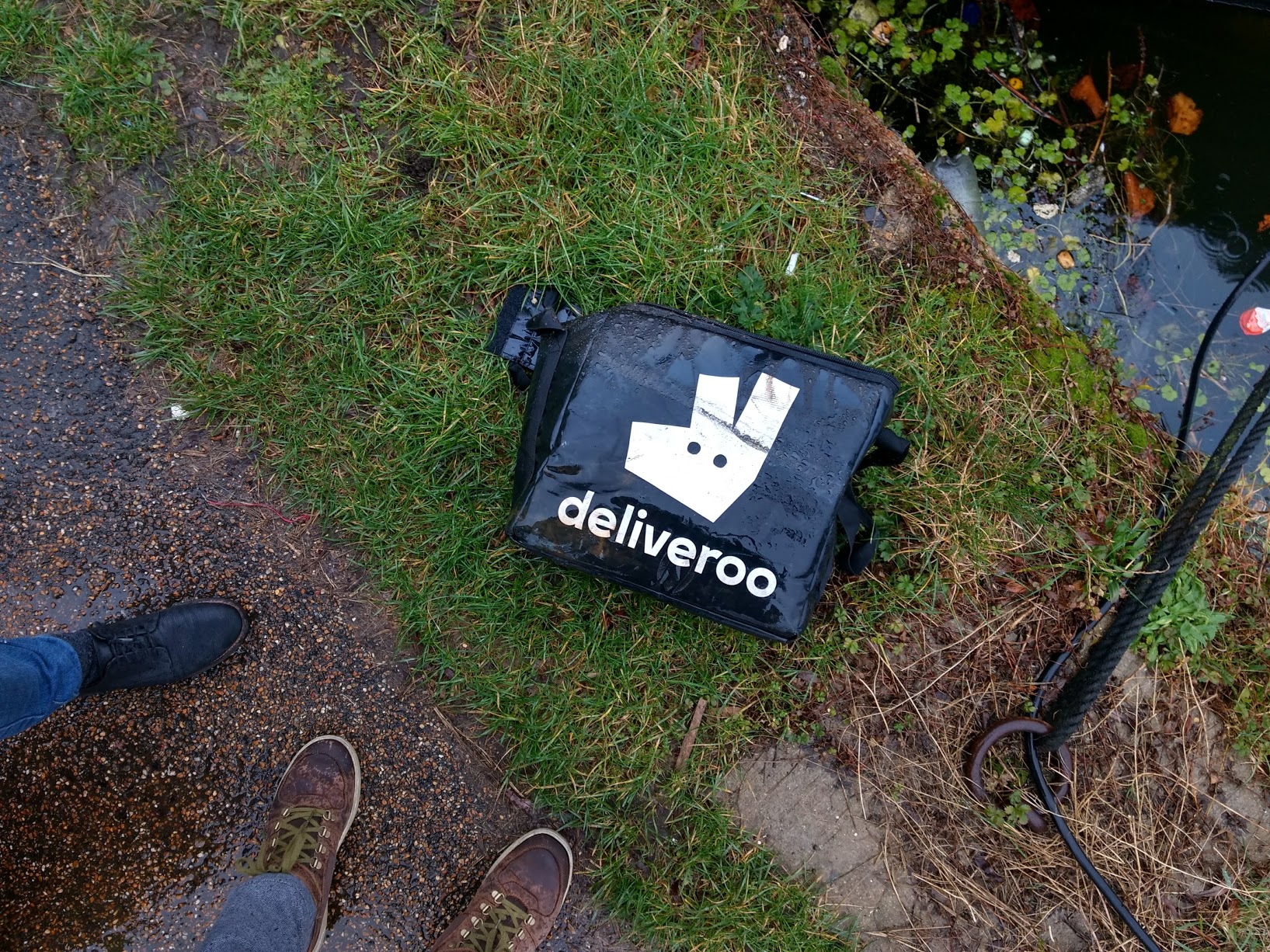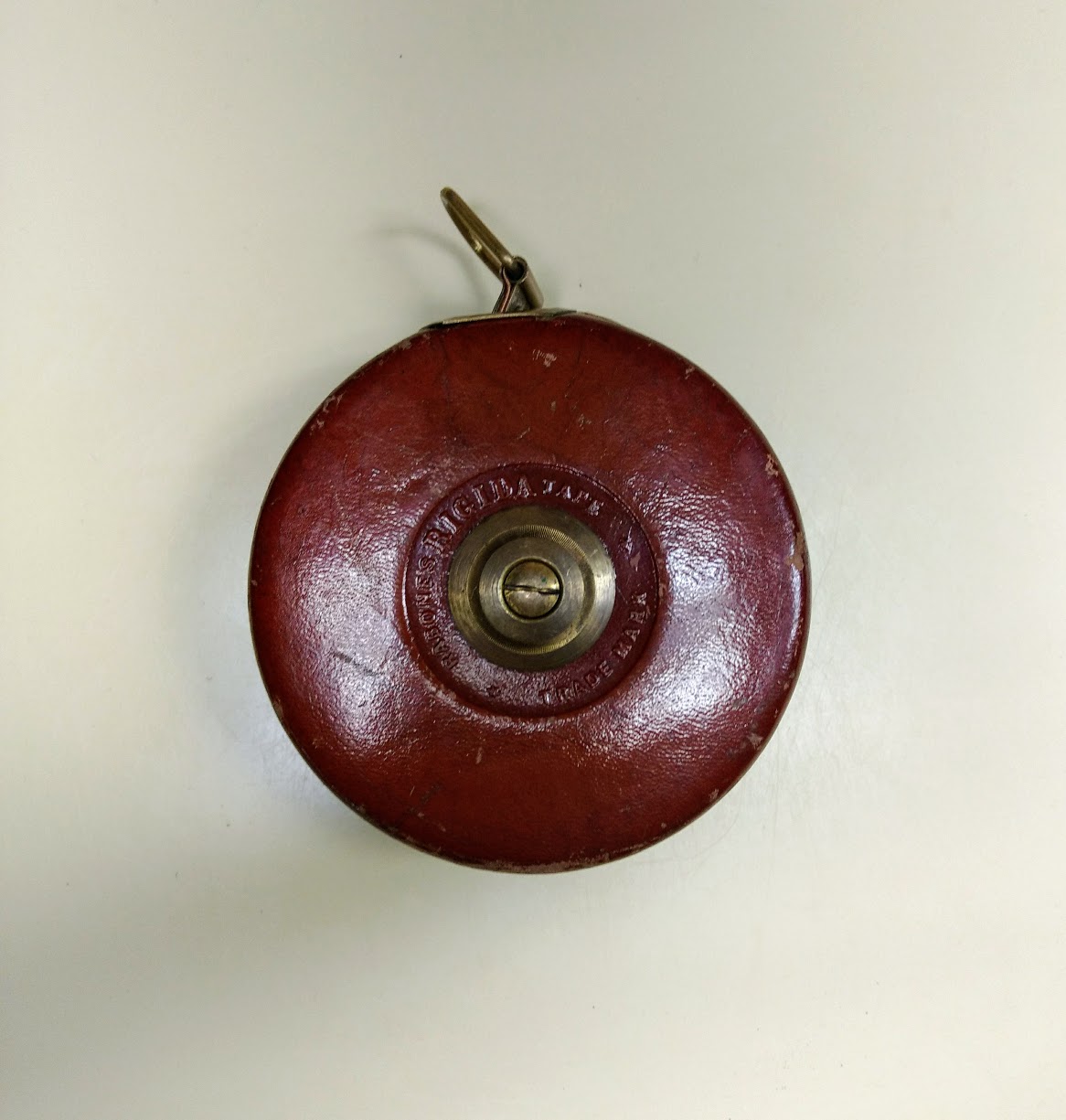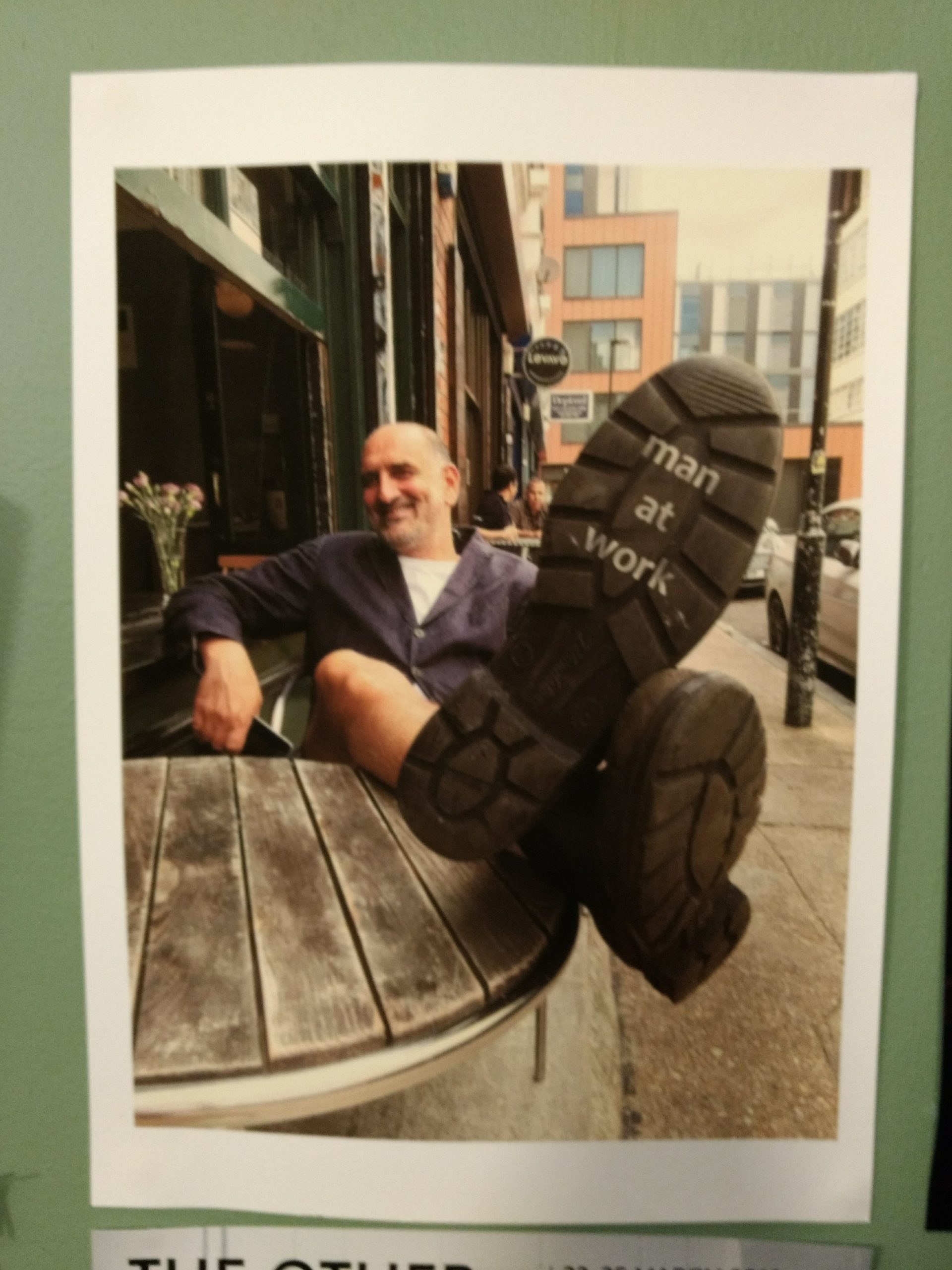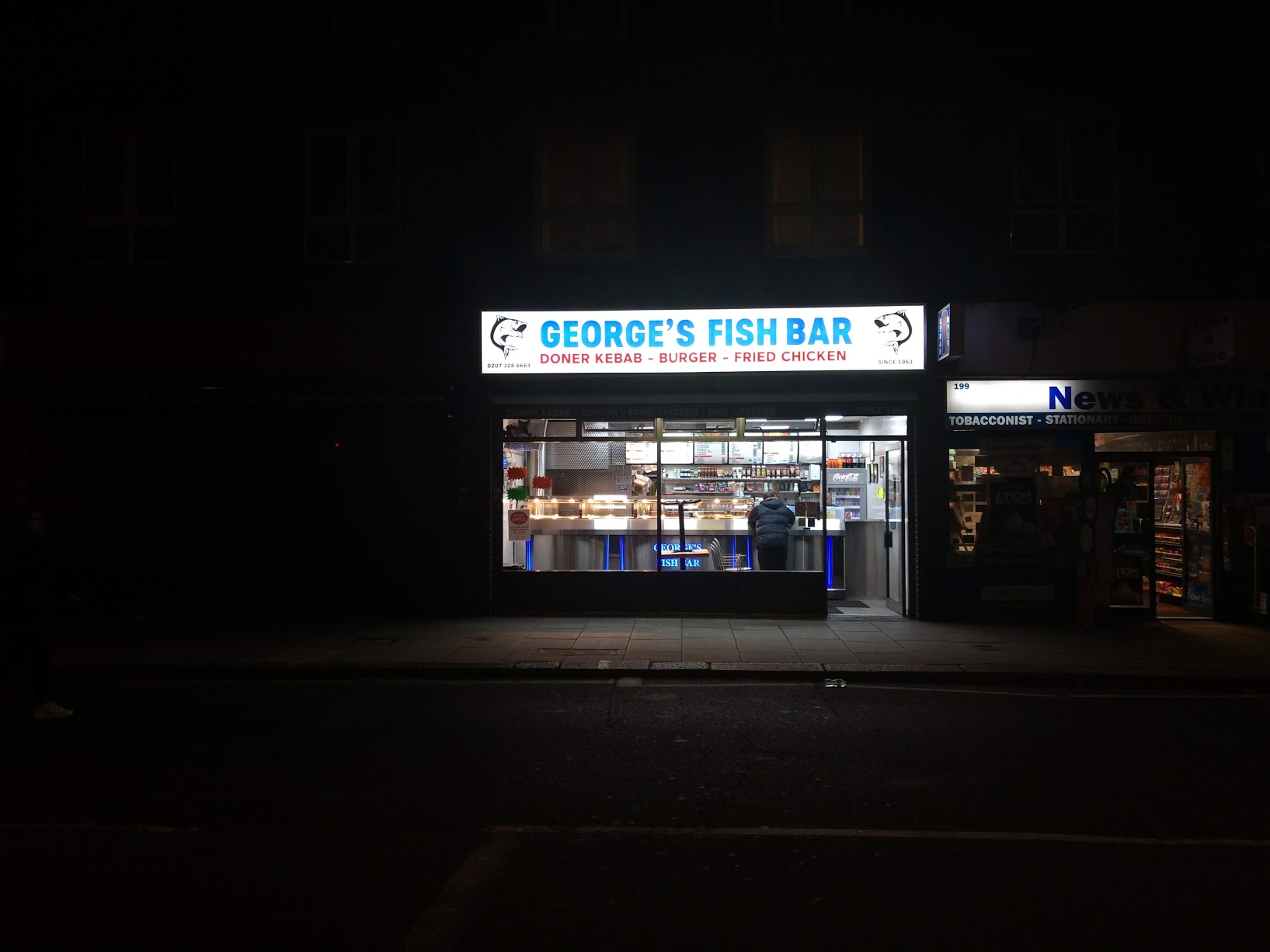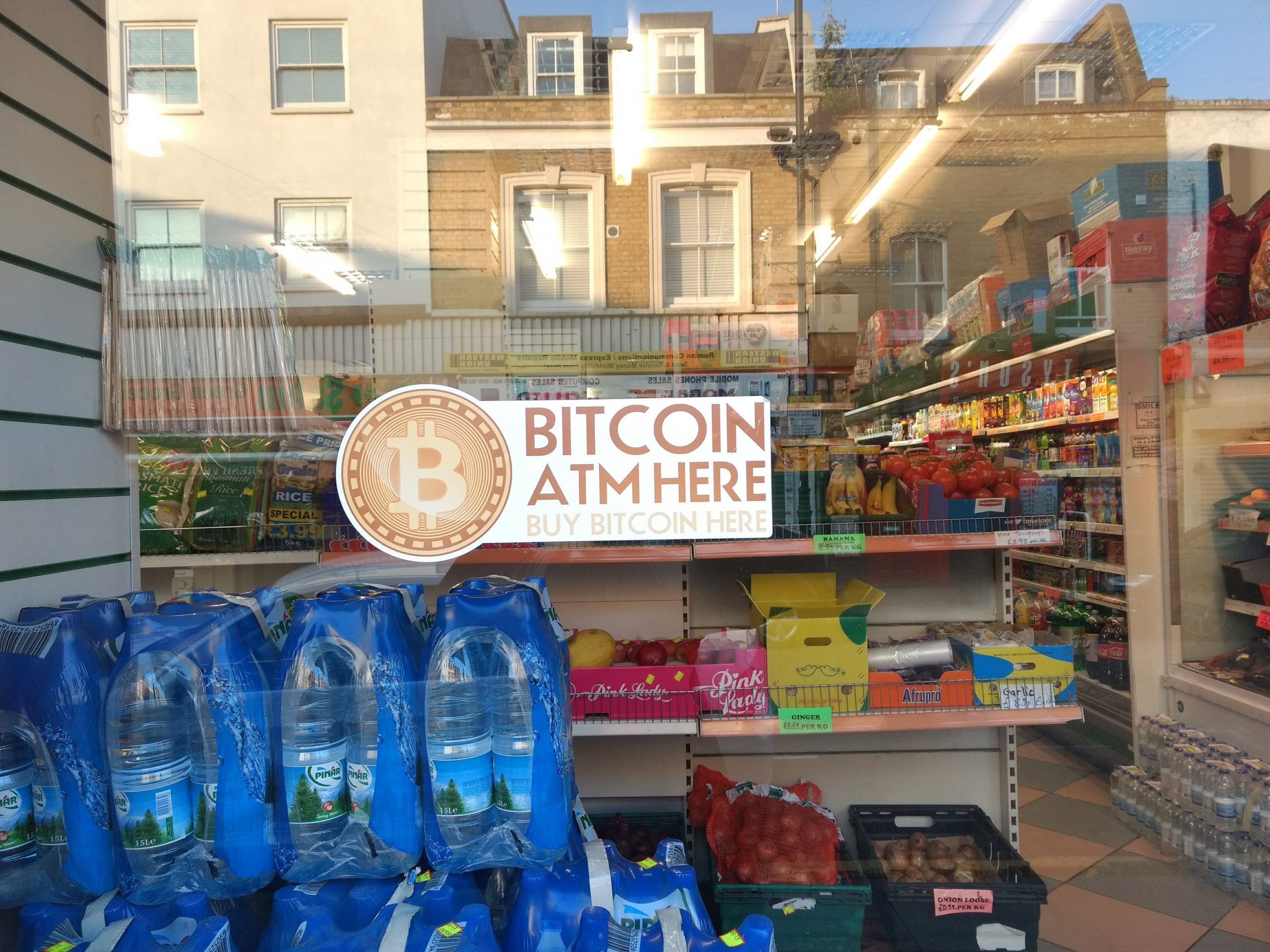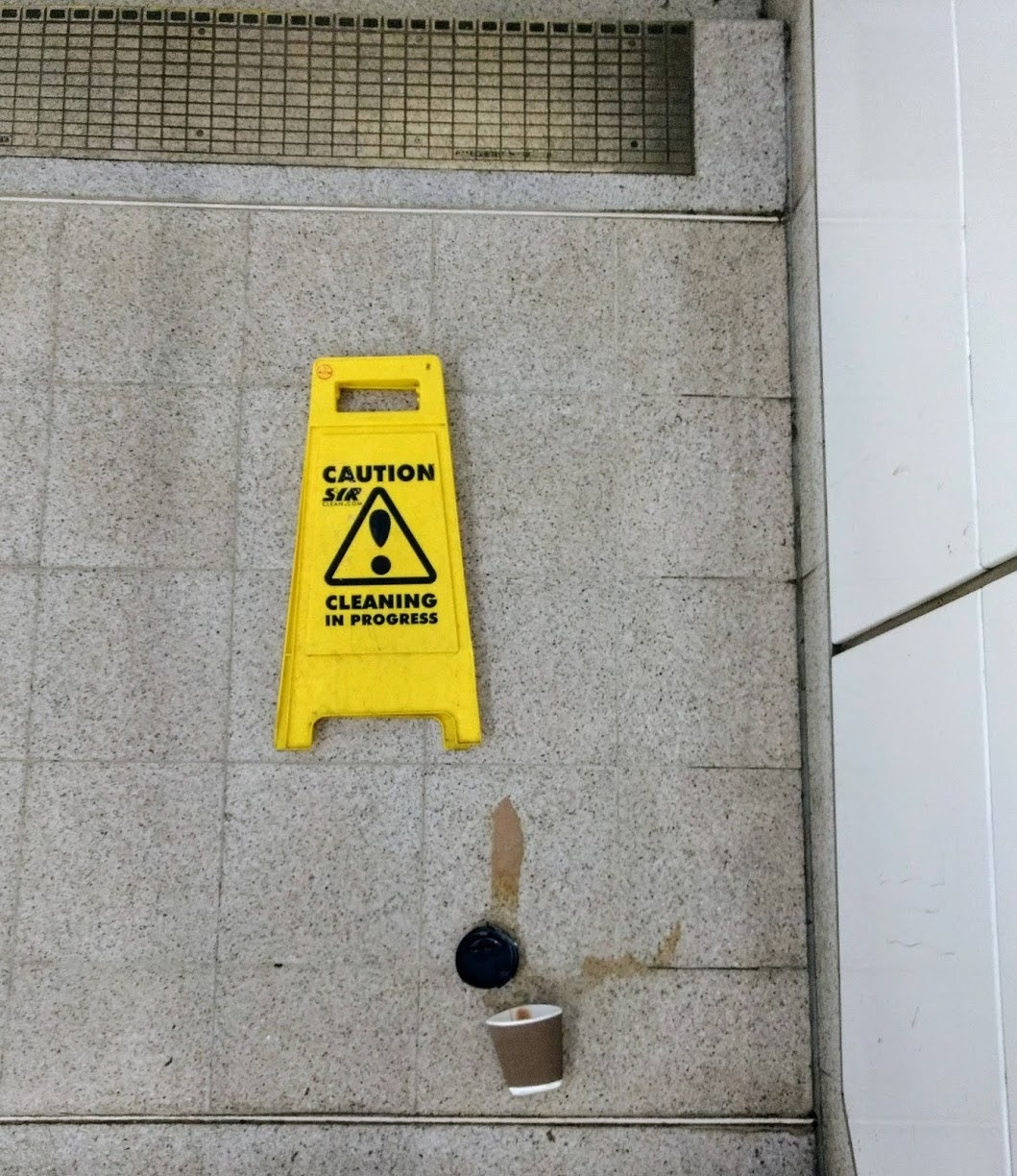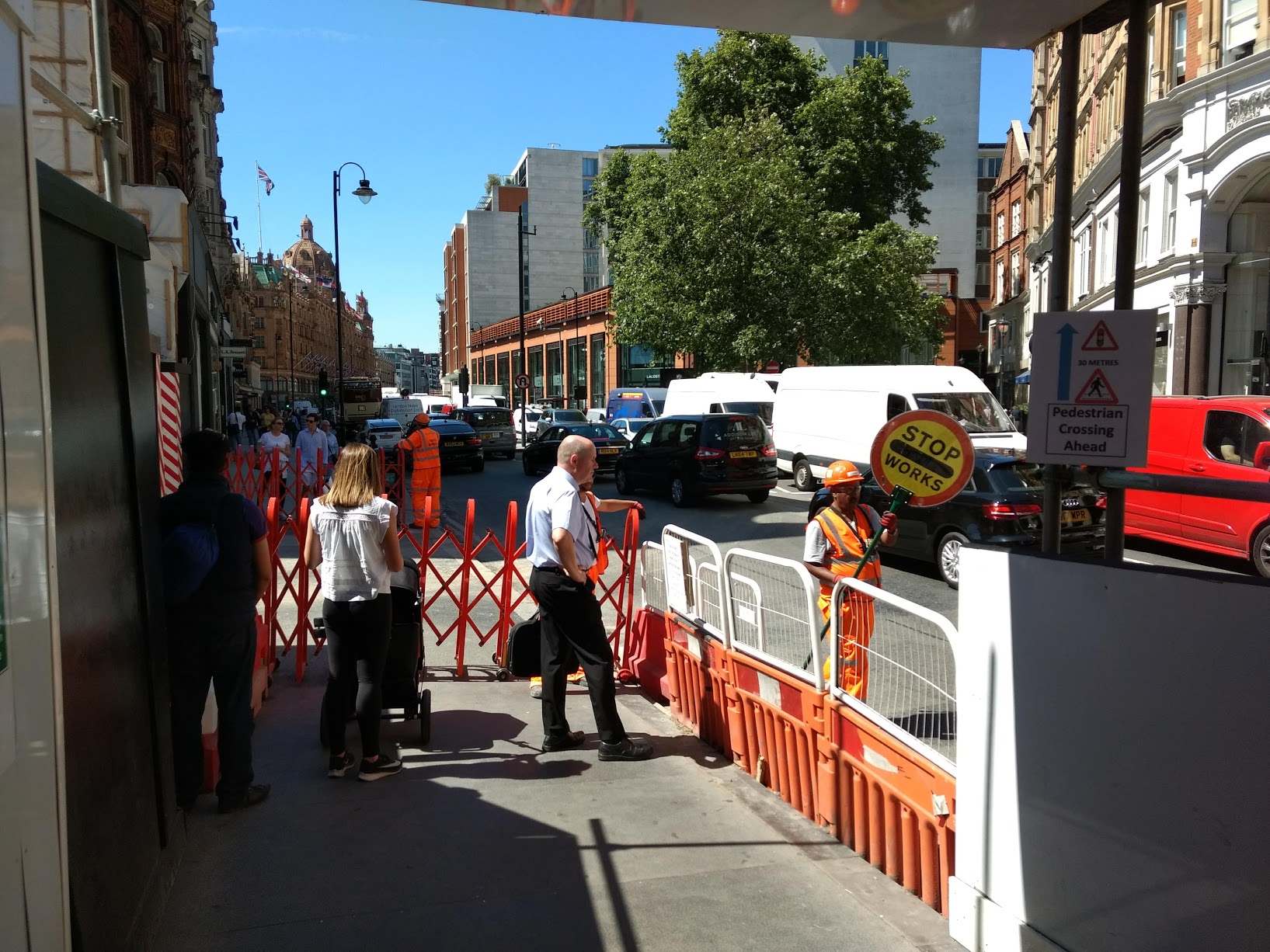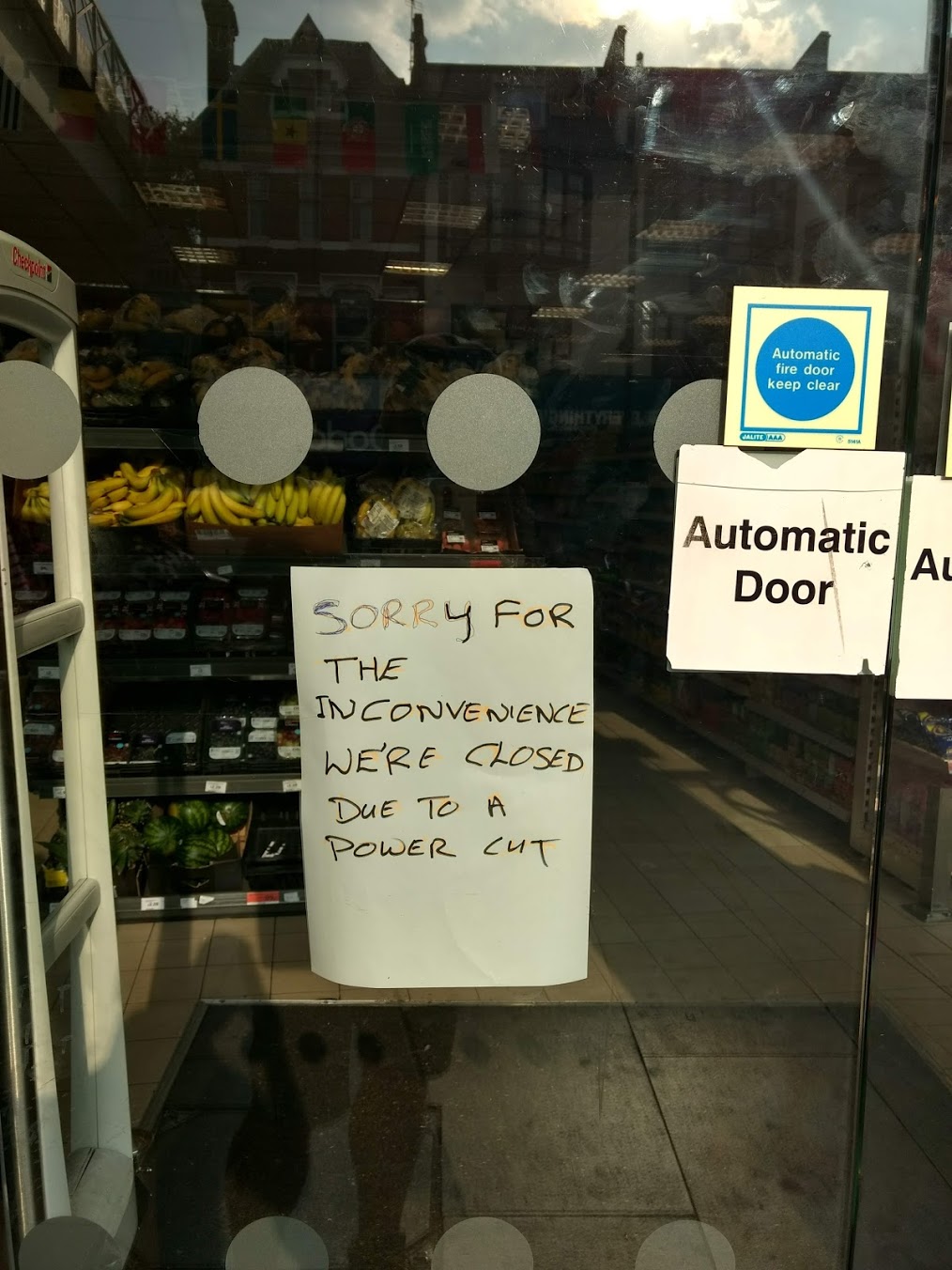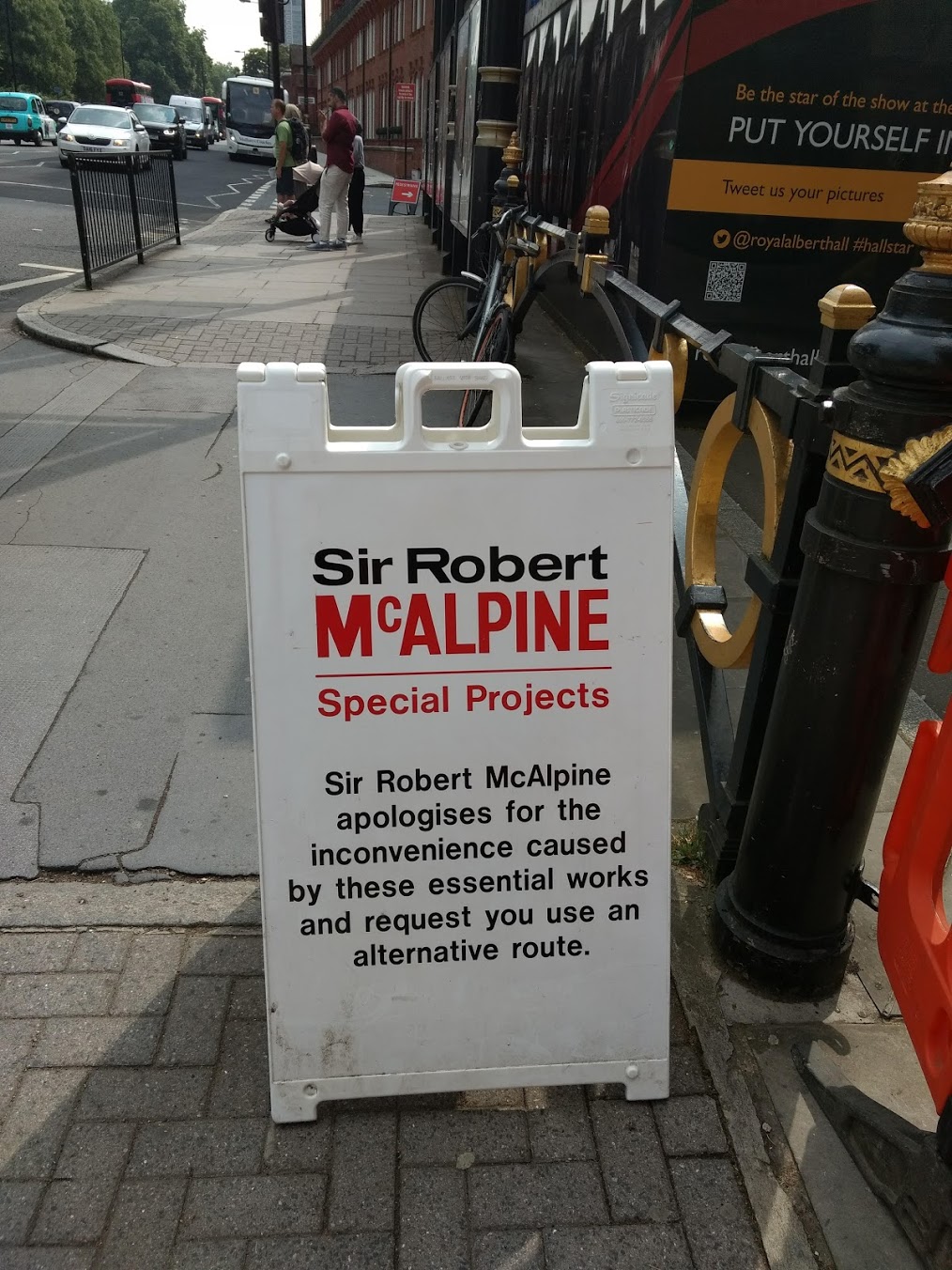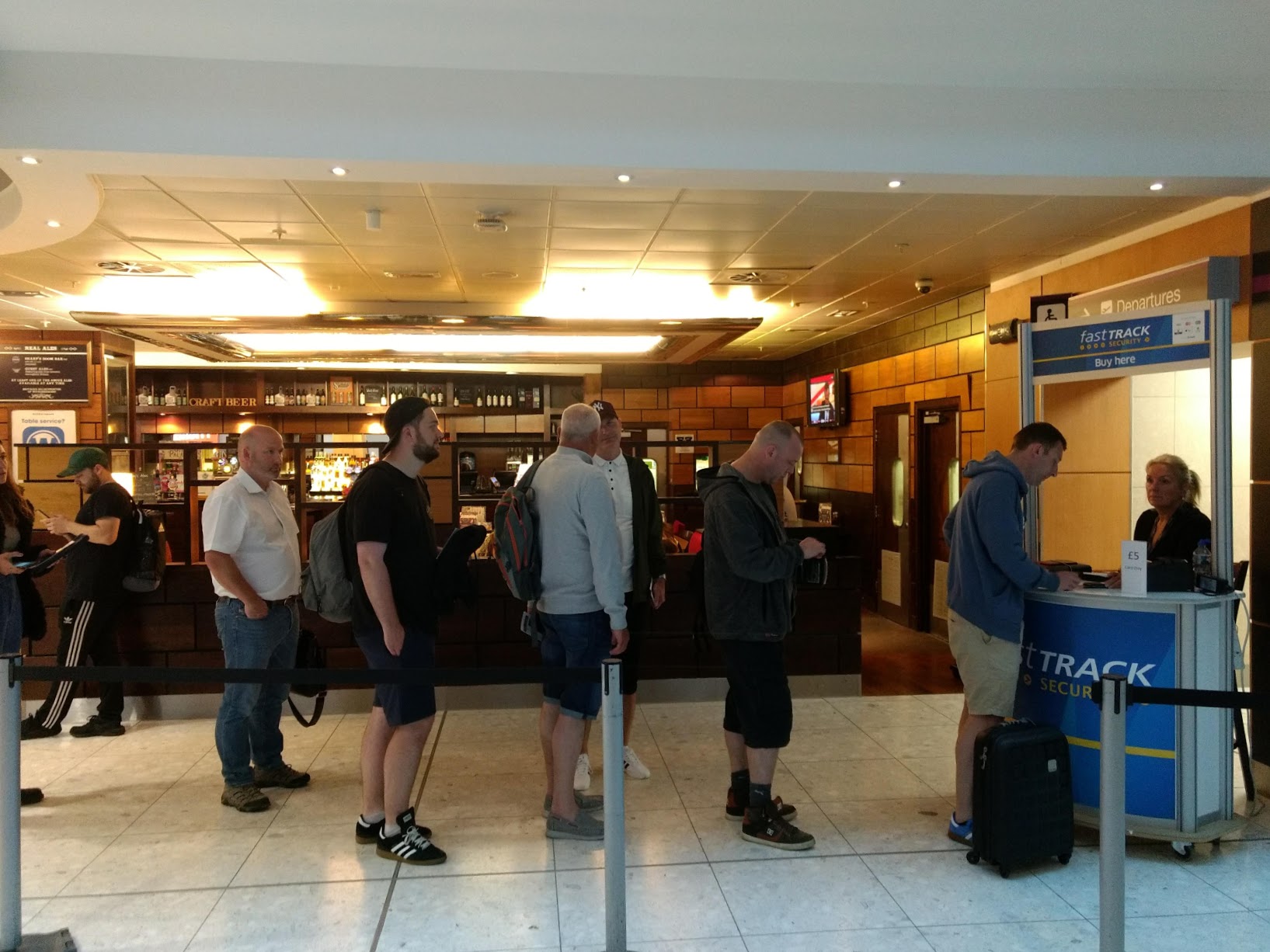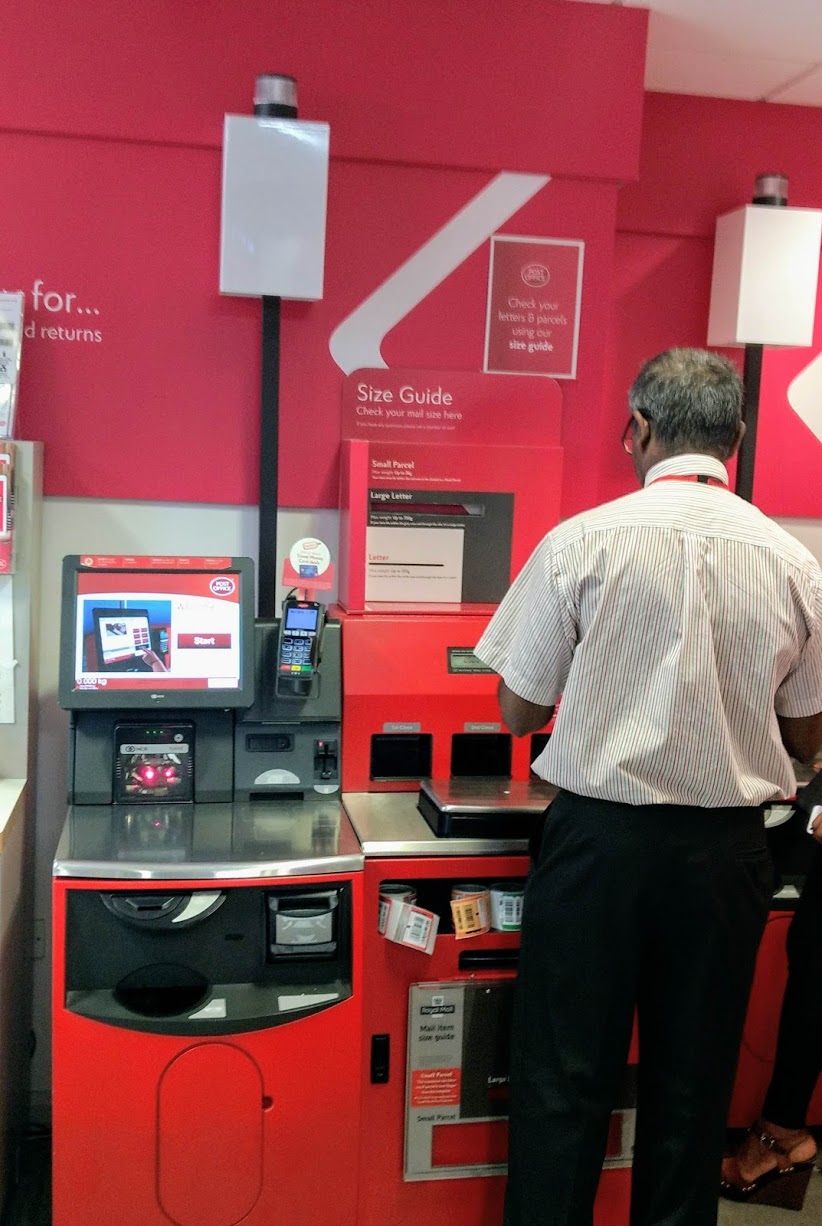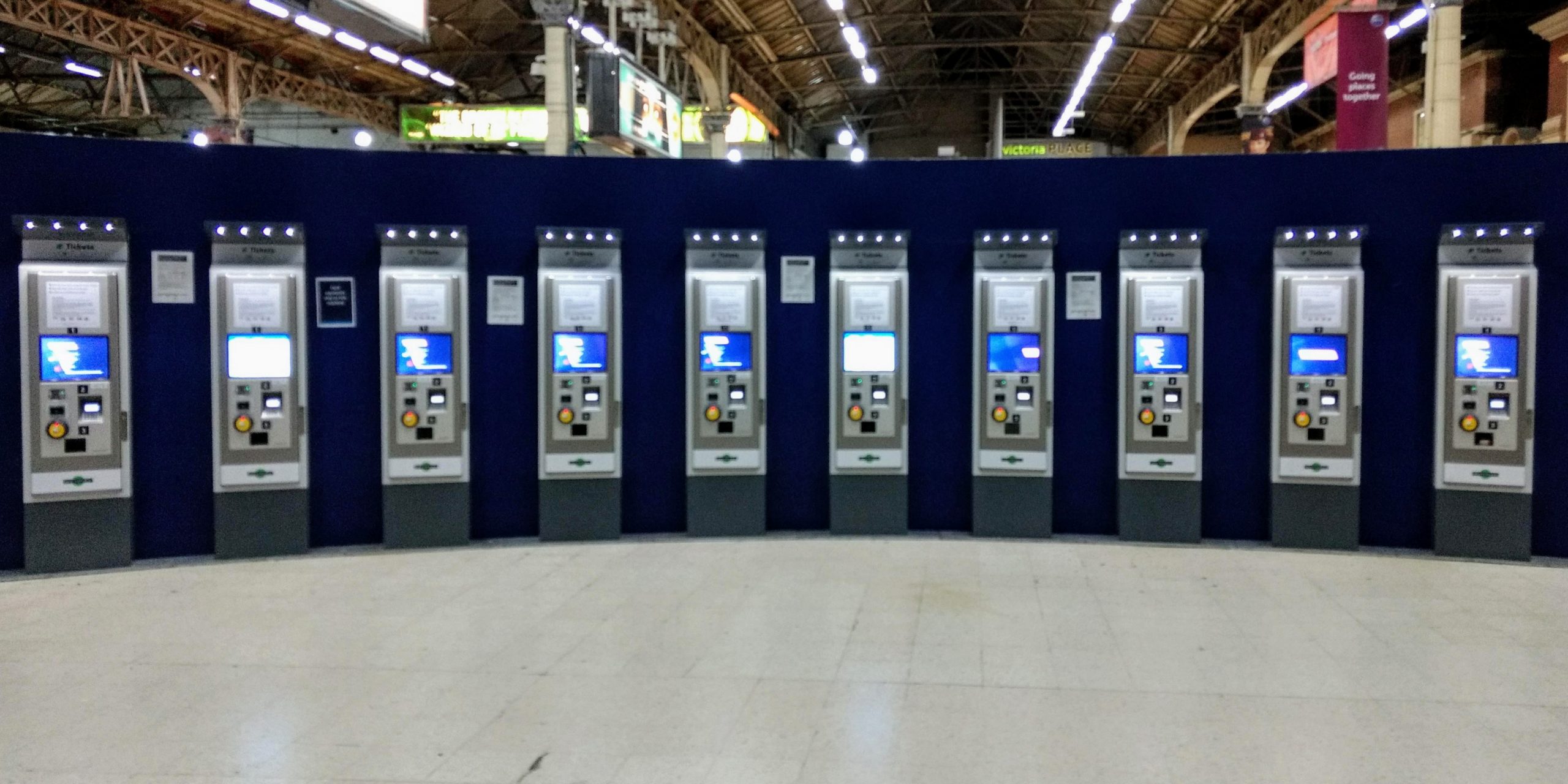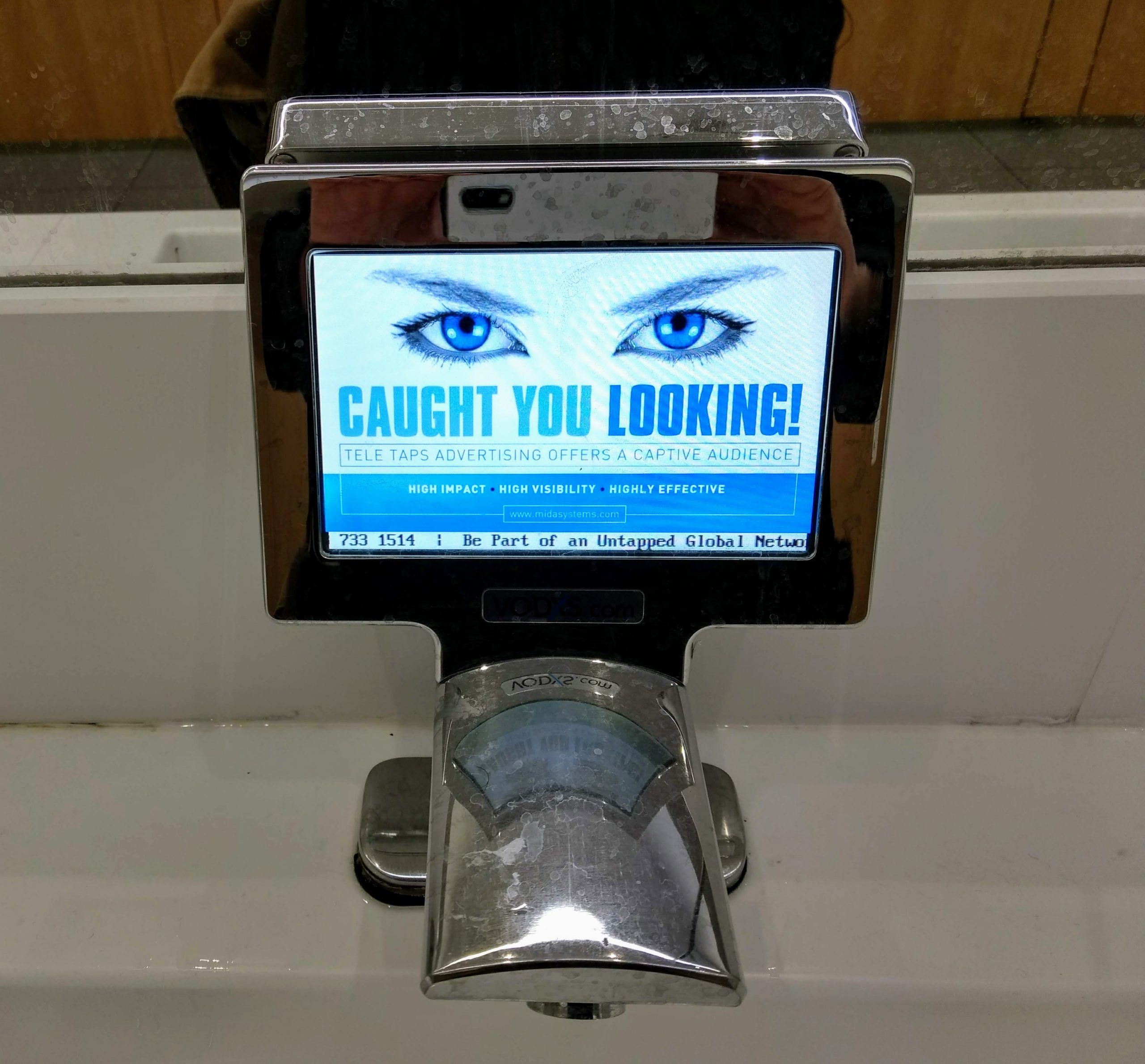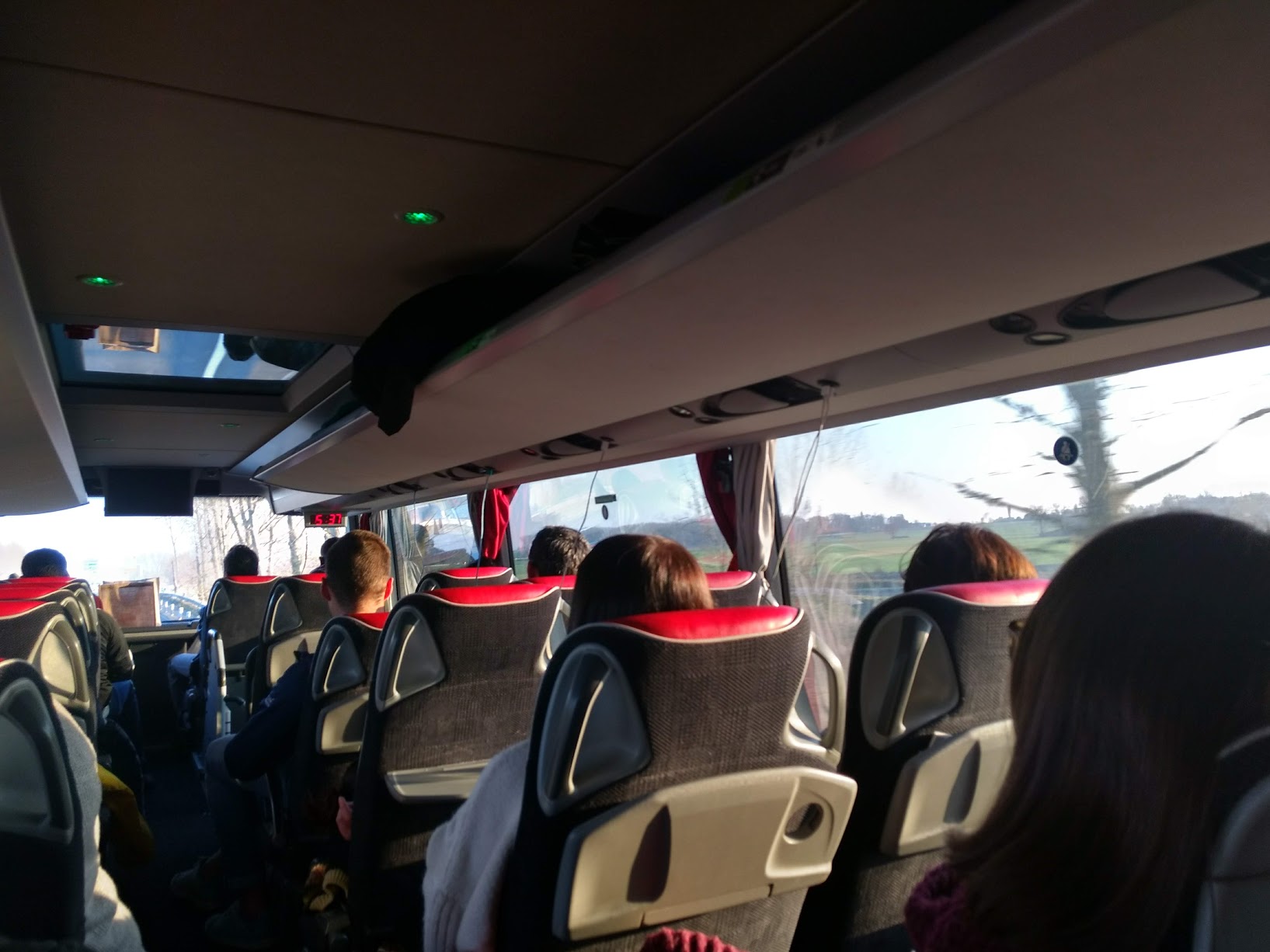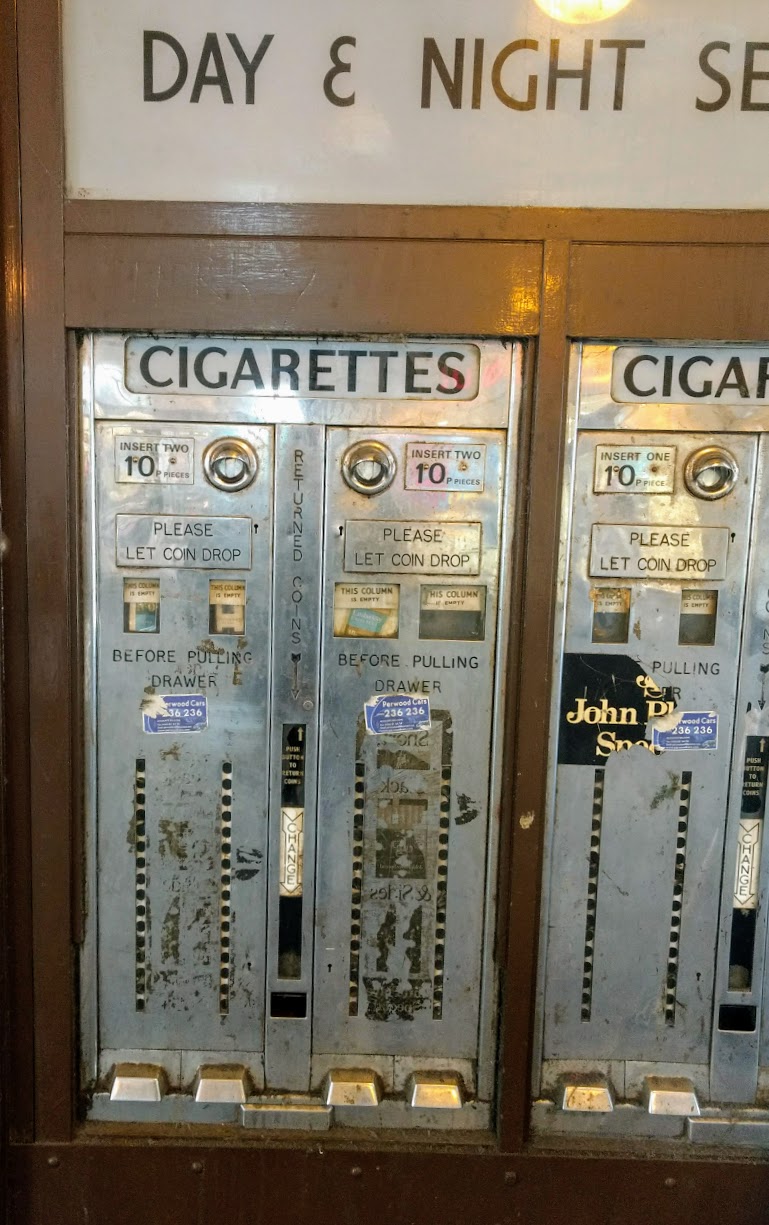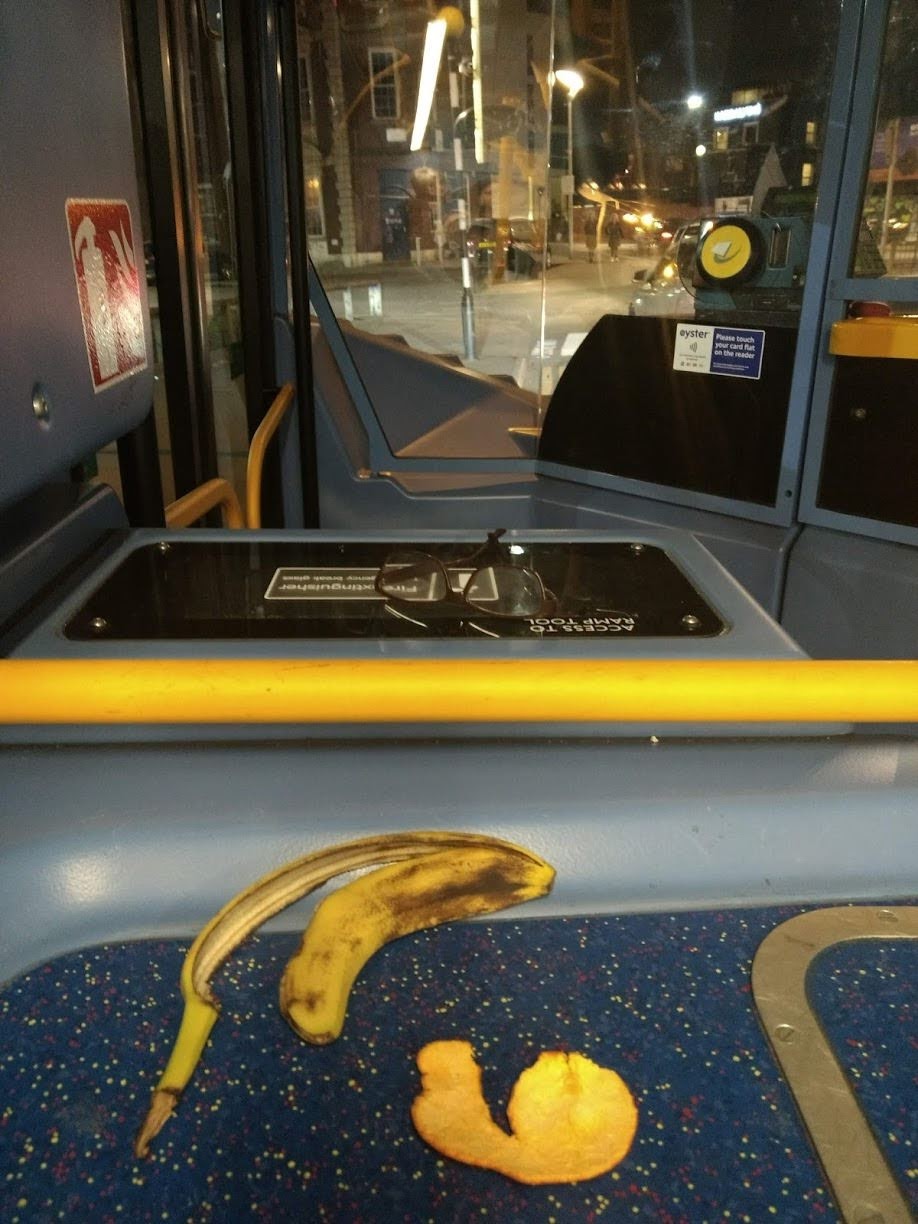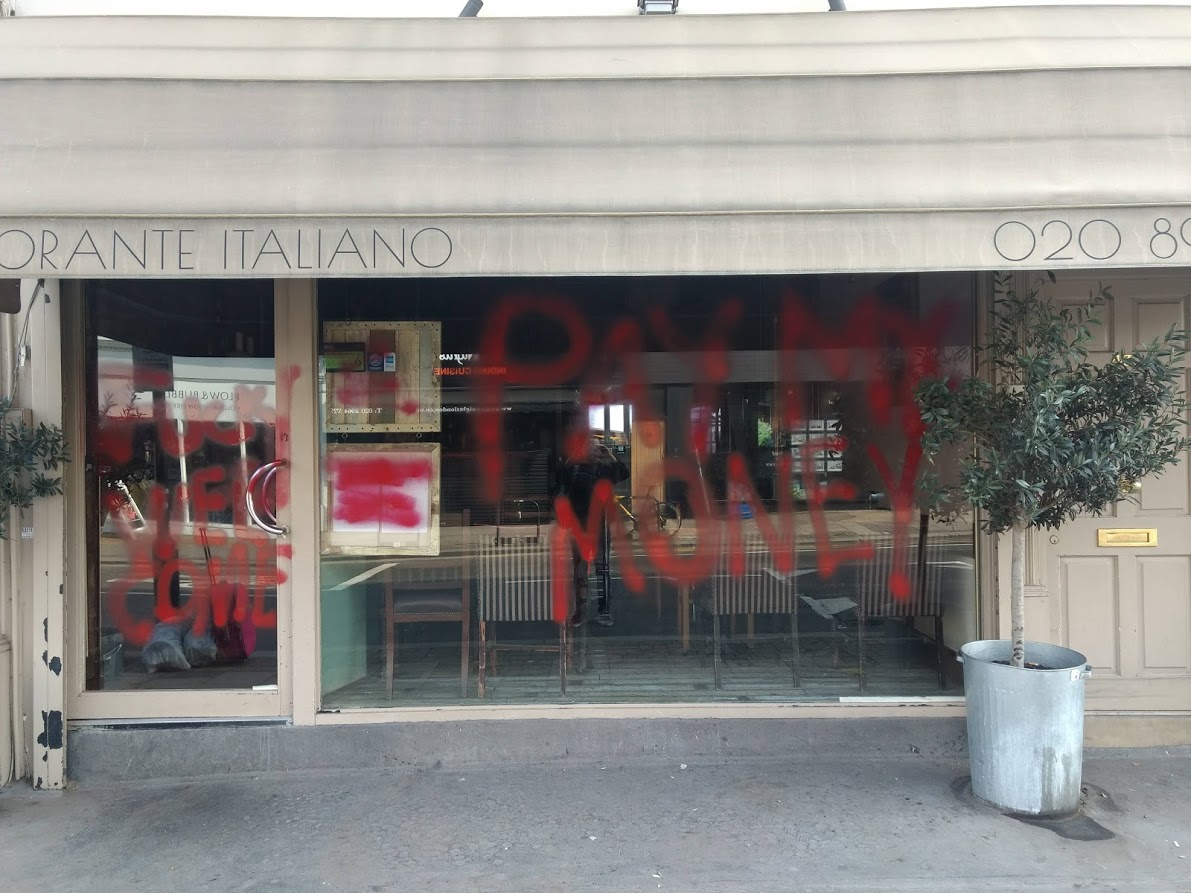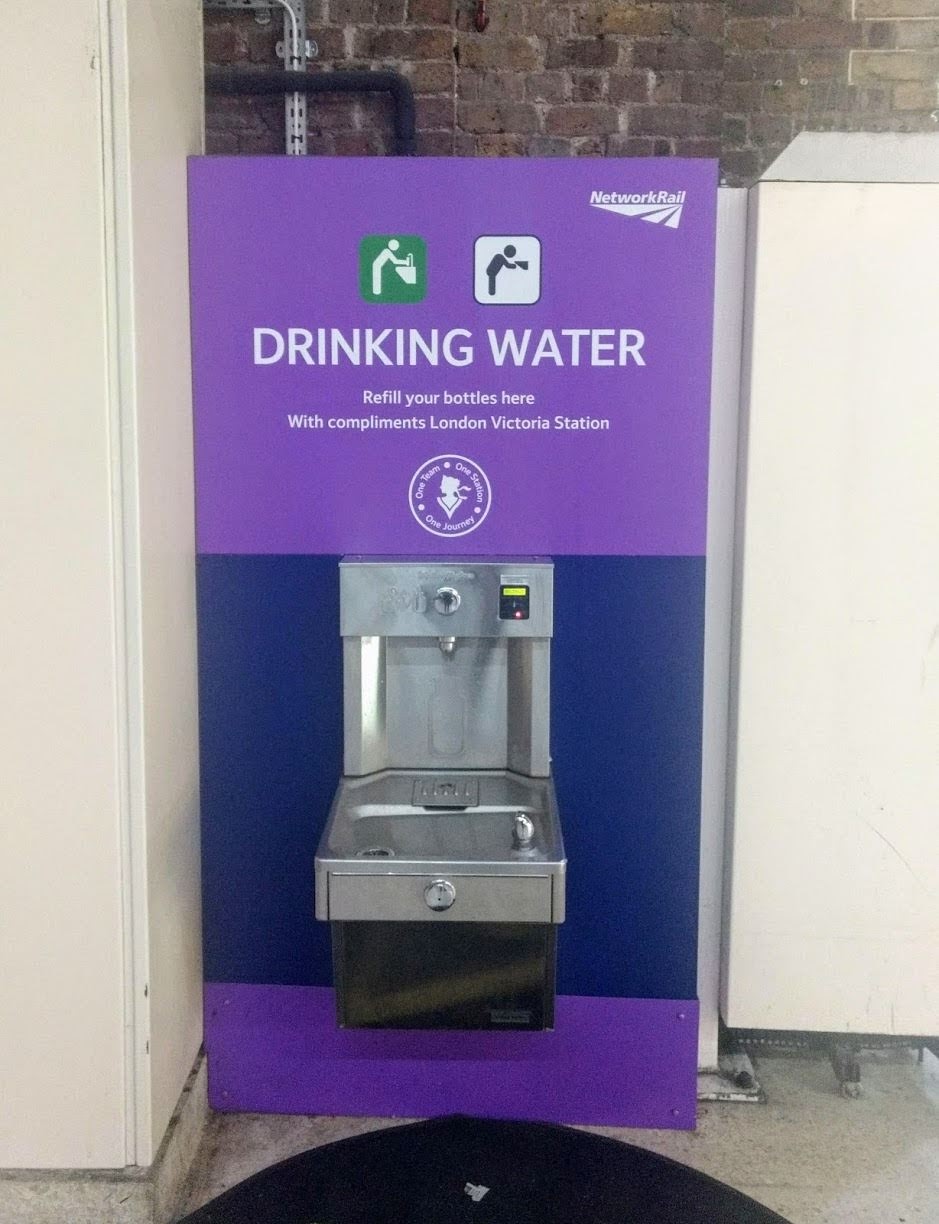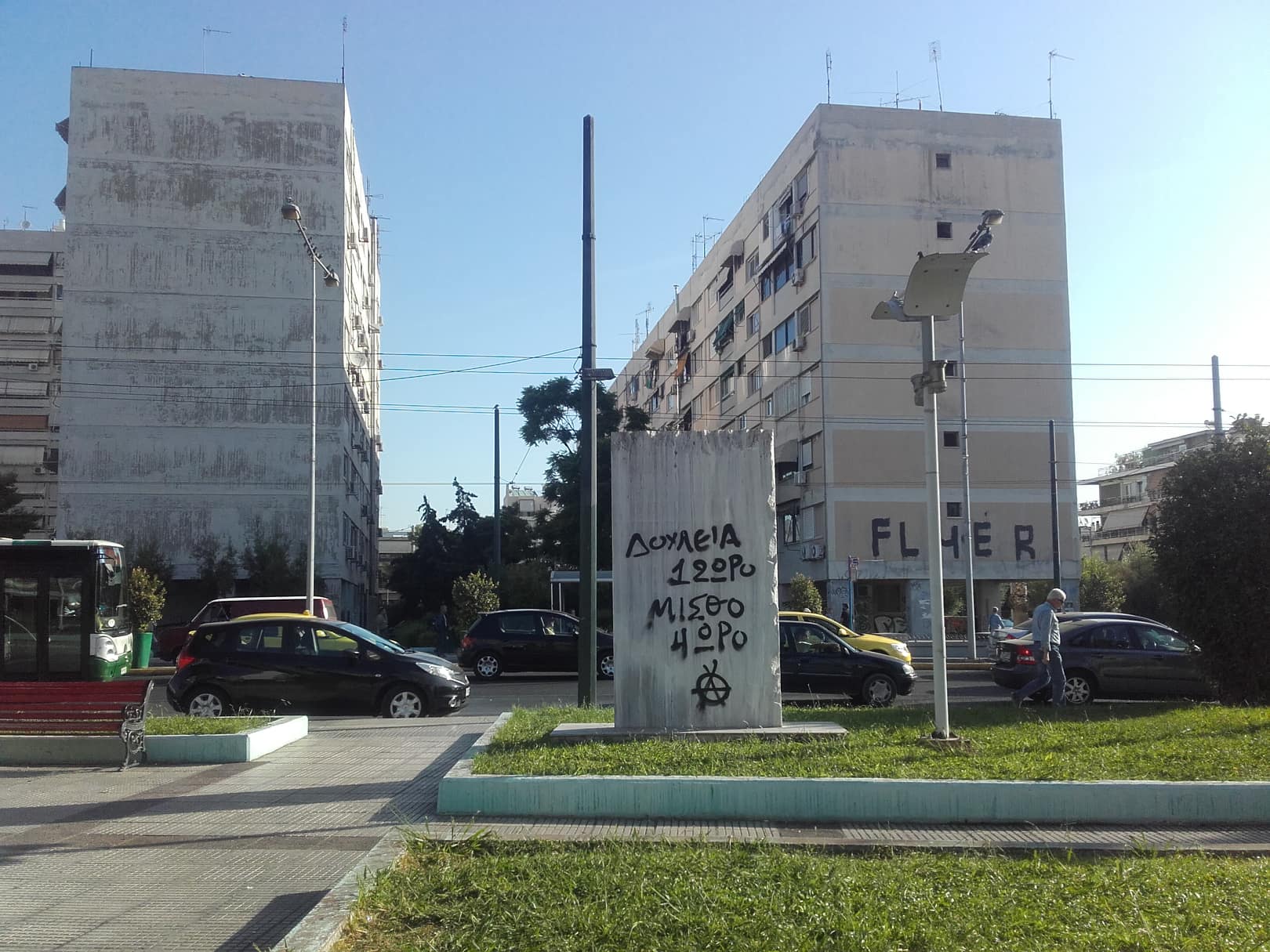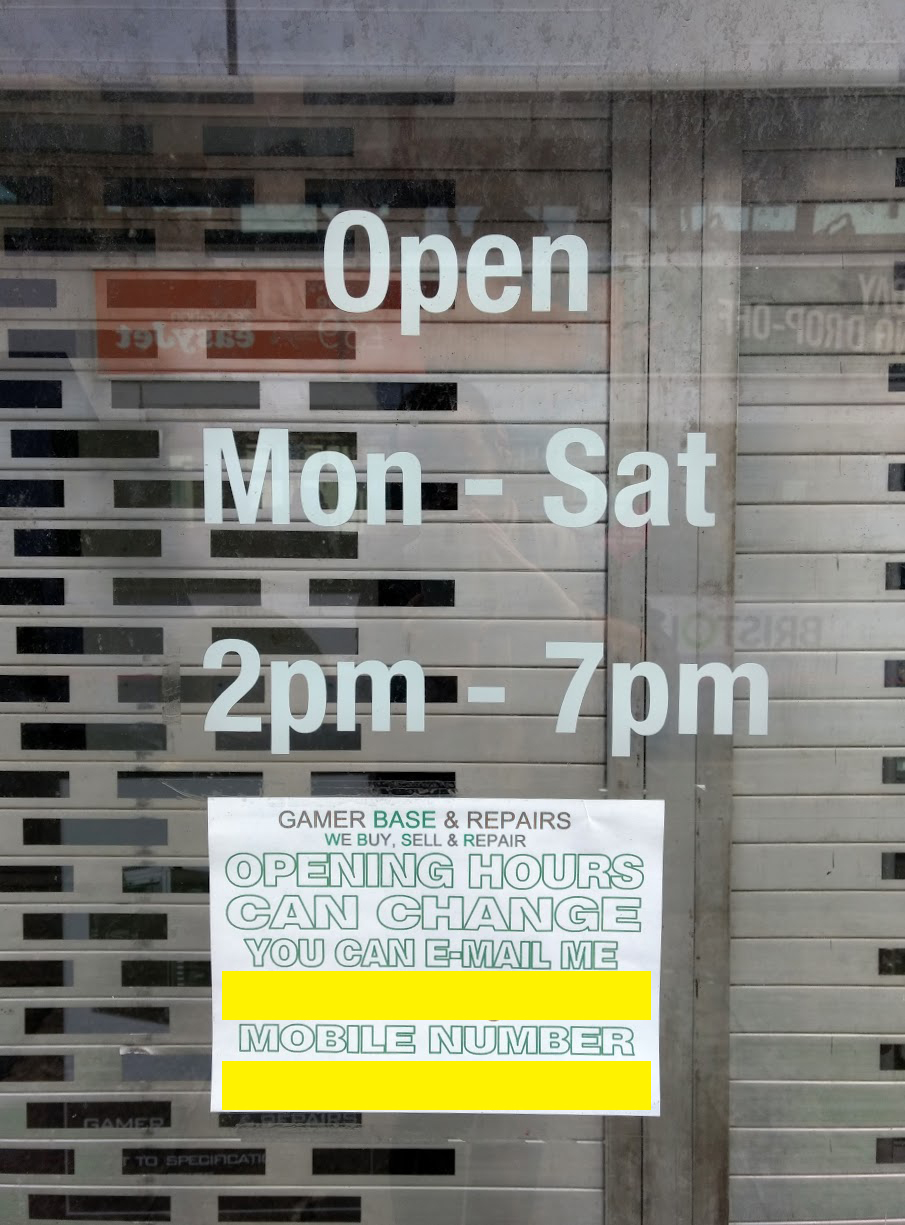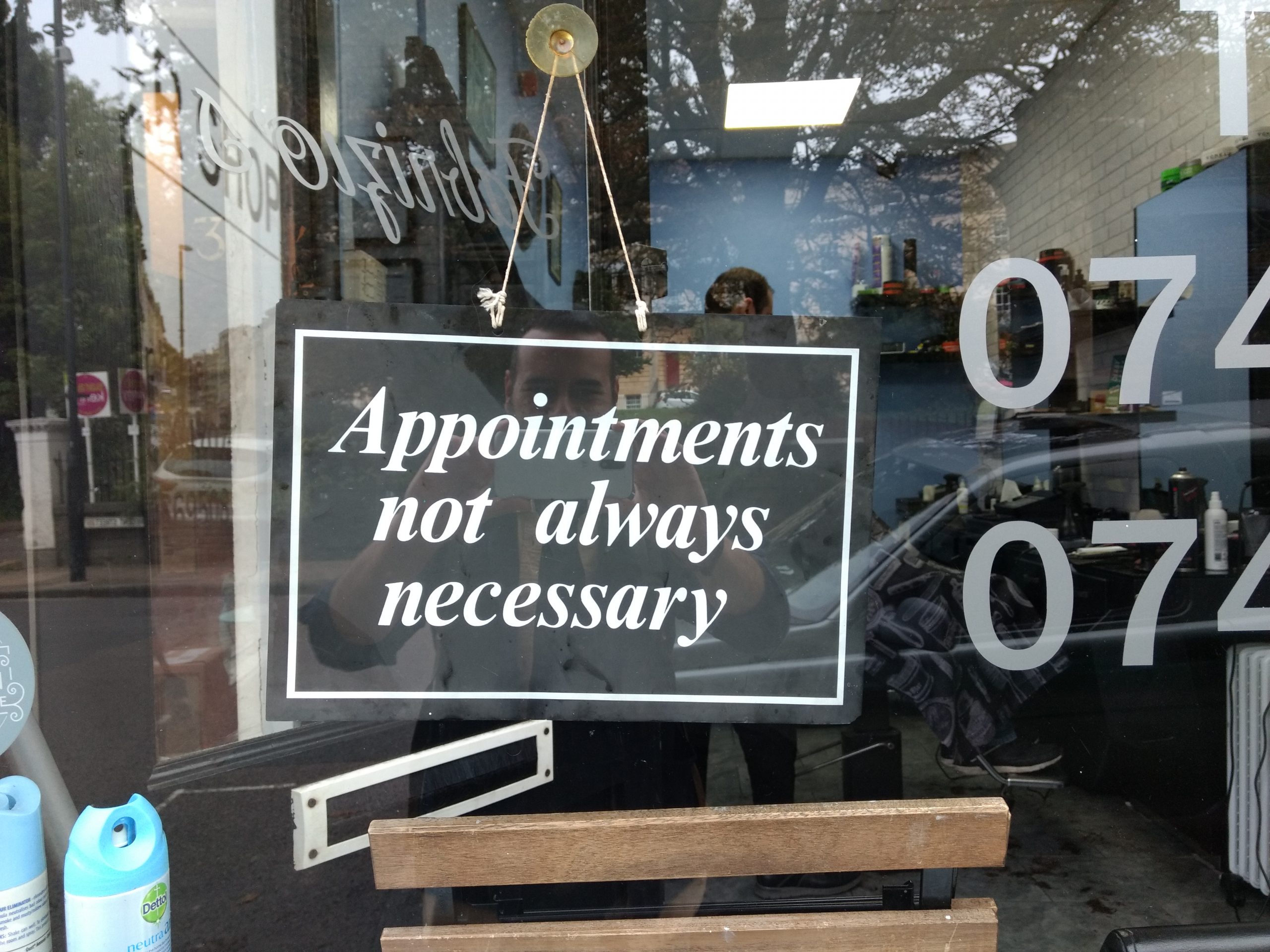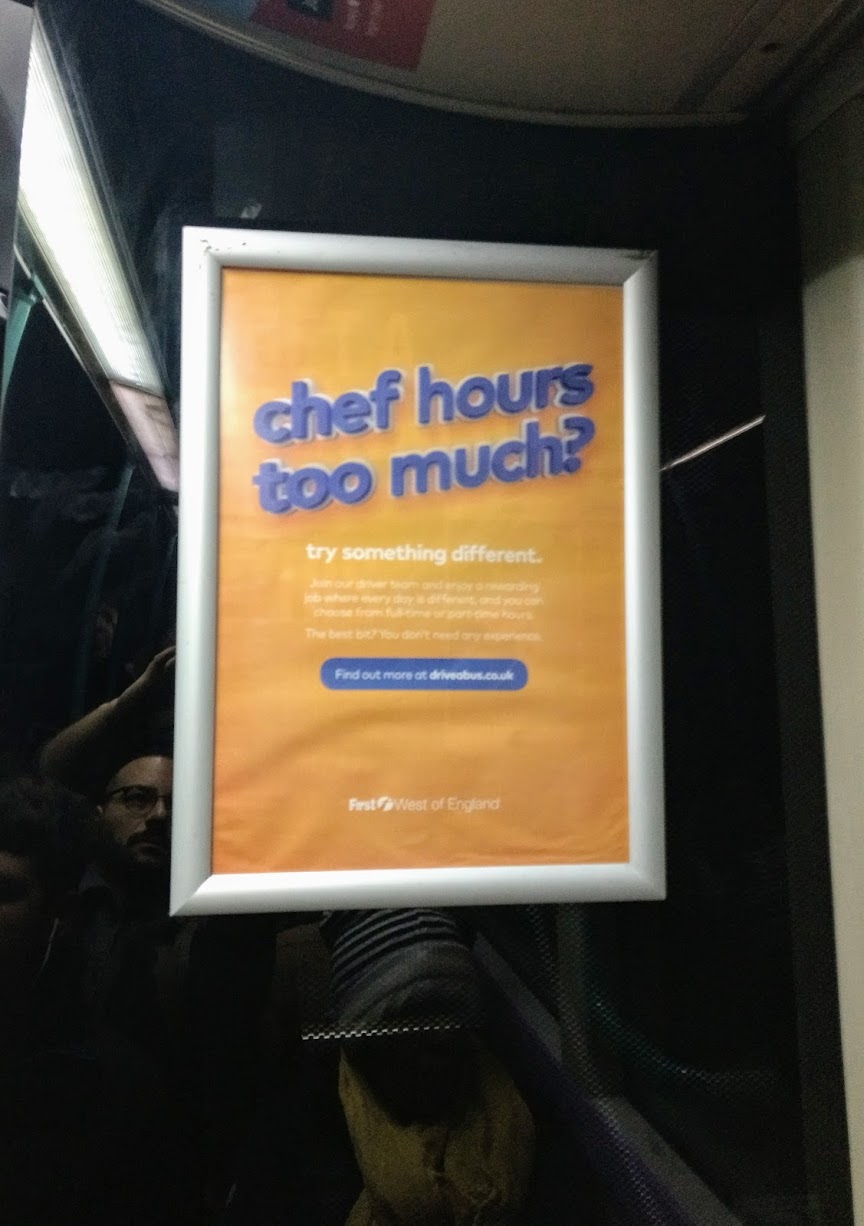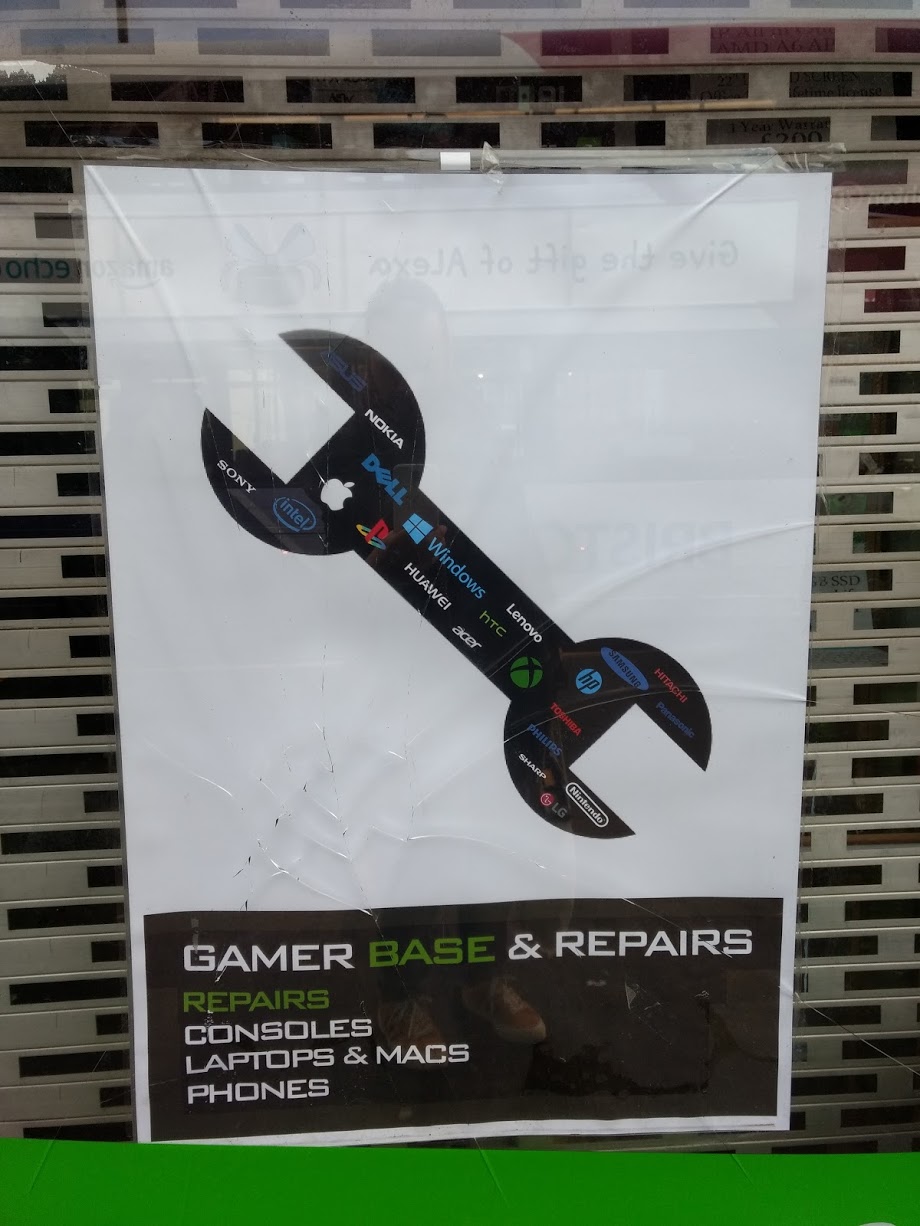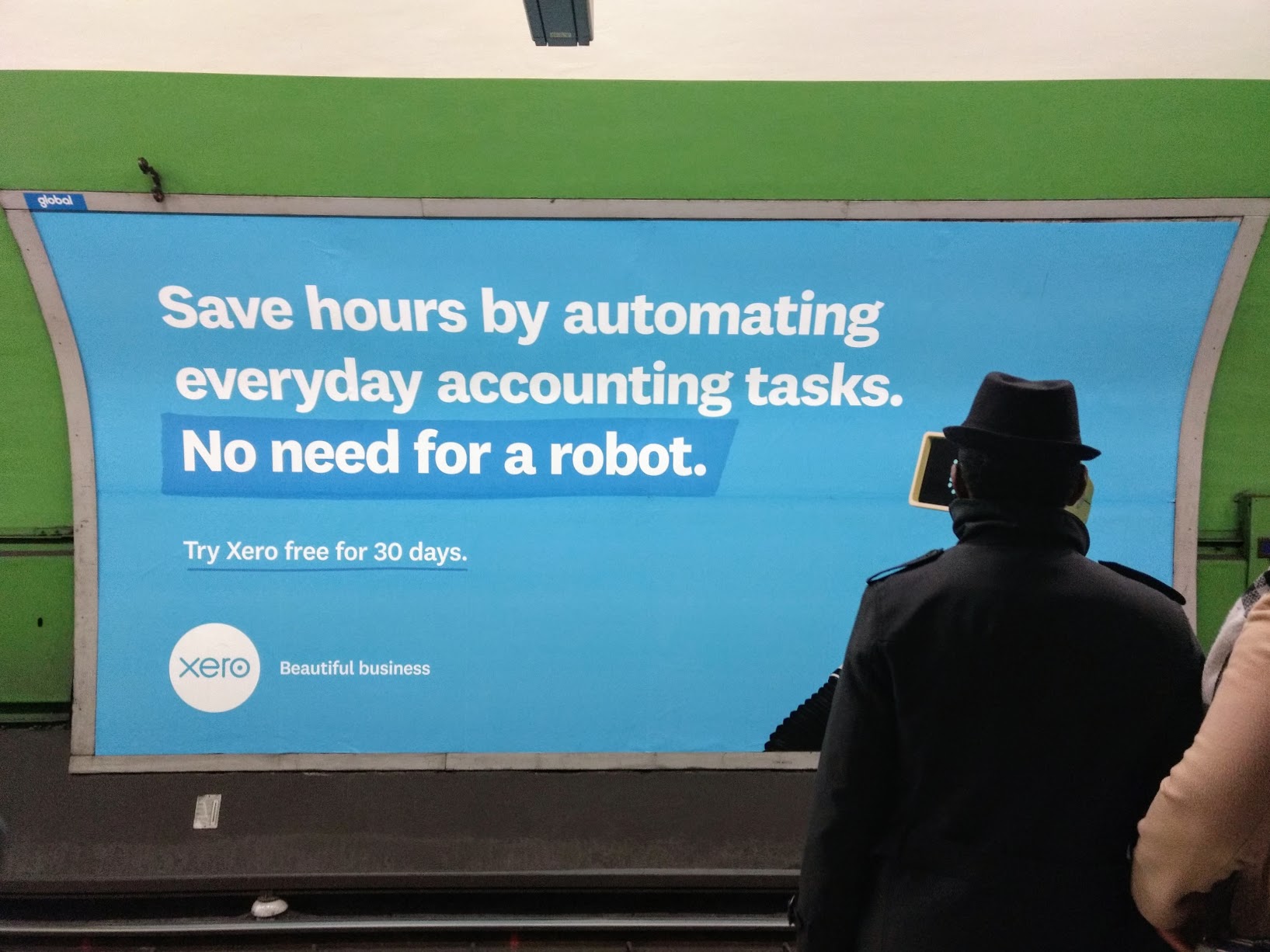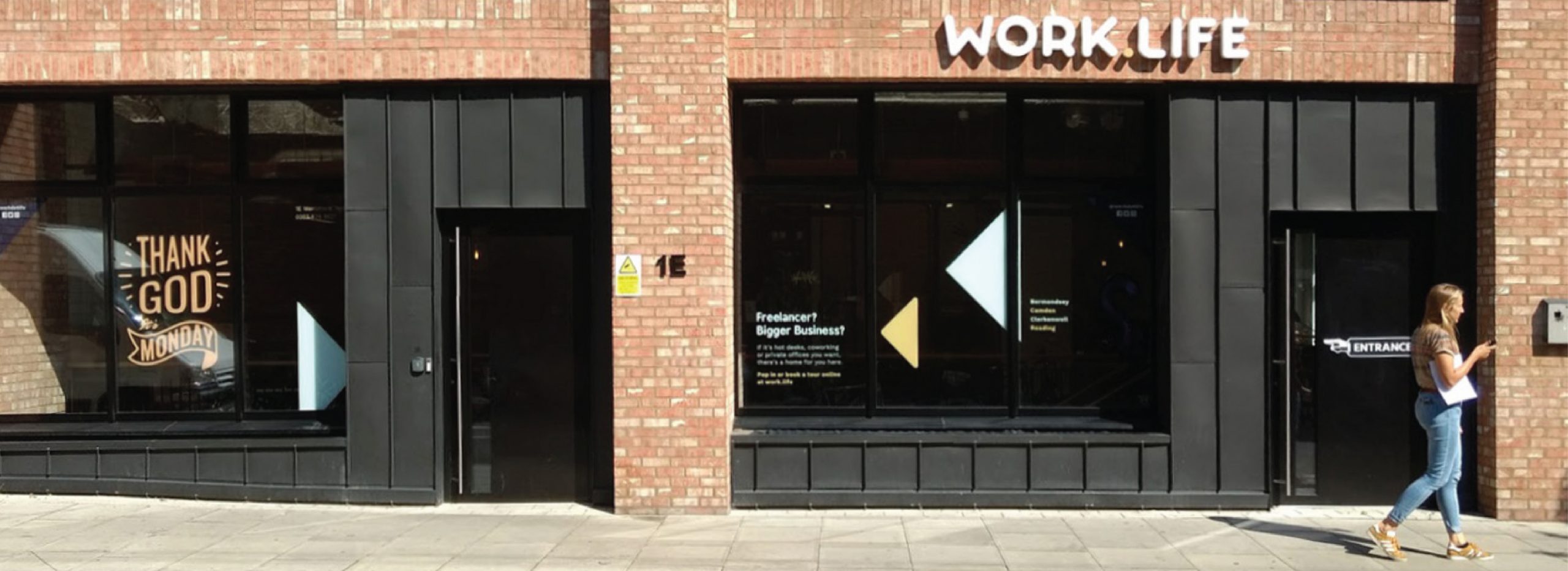
Work Aesthetics
Work Aesthetics is an urban photography project that documented places, objects, technologies of socio-economic life in London and Bristol between 2017 and 2020. By drawing attention to fleeting moments of the everyday, the project aims to challenge the individualising character of waged work, and the grand narratives of automation. Taken with a cheap smartphone, the photos sit somewhere between observation and art. Presented in chronological order, from older to more recent.
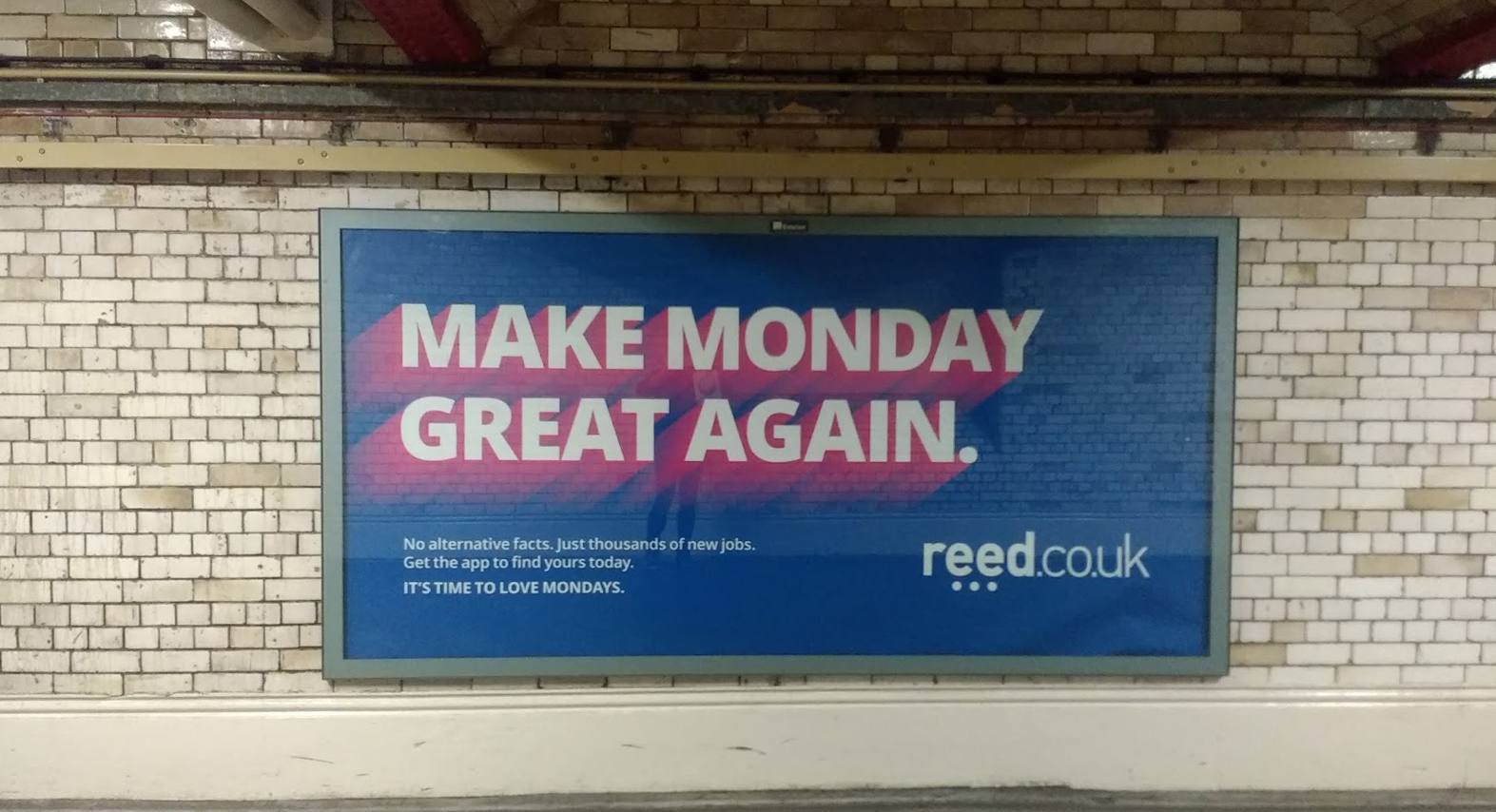 Monday the Great
Monday the Great
South Kensington, London, 2017
Don’t/Do
London, 2017
I think one of the issues with contemporary work is not that we do not promote the specific types of skills that make a CV, but that we do, to the point that we they identify with them. We become our work. We are not. There are so many other kinds of skills and knowledges that are too elusive to fit into a CV – or to be recognised by management.
Future Delivered
Stratford, London, 2017
Mistrust
Shoreditch, London, 2017
Drop-off point
Hackney Wick, London, 2018
We found this Deliveroo thermal bag while walking by the canal in Hackey Wick during a rainy Sunday. Who had left it there and why? A rider that quit? They can’t, they are self-employed. Perhaps one that delivered the food to one of the boats, and stayed for a dinner that took longer than expected? Or a frustrated worker that went on strike?
Chinese Meanders
London, 2018
That photo was taken on the same day with the one above, during the shooting of a short film. At a point I had to provide food to some members of the crew that due to dietary reasons could not consume catered food. I rushed to the Chinese takeaway next door, only to see this weird blend of food menus, a TV/VCR combo and what looked like Greek meander tiles. With a bit of digging, I found out that similar squared-off patterns appear in Chinese art. Wondered if the tiles where installed by the current owners, or where remnants of an ancient Greek civilisation that probably sold souvlaki and kleftiko.
Focus Puller
London, 2018
For some reason, I thought that professional cameras adapt their lens focus automatically when a subject moves. A friend of mine who happens to be a film director told me that this is the case only with very expensive models, and that usually there is a camera assistant, the focus puller, who operates the focus remotely. Before the shooting begins, the crew establishes actor’s positions using tape, and the focus puller goes around measuring the various distances between the actors’ marks and the focal plane of the camera. The focus puller then marks the distances with a pencil on her follow focus device. The measure of the photo is the one that the focus puller used during the shootings of my friend’s short film, in which I helped as a runner. By observing the fascinating world of filmmaking, I was often out of focus.
Man at Work
Shoreditch, London, 2018
This photo is on the wall of a café in East London. Is not a coincidence, I think, that the store is Italian.
All-in-one Shop
London, 2018
Fish, Doner, Burger, Chicken
BitCoin ATM
Hackney Wick, London, 2018
I really it like when some versions of state-of-the-art technologies find their way to ordinary places. These are the raw ingreidents from which good cyberpunk futures are made.
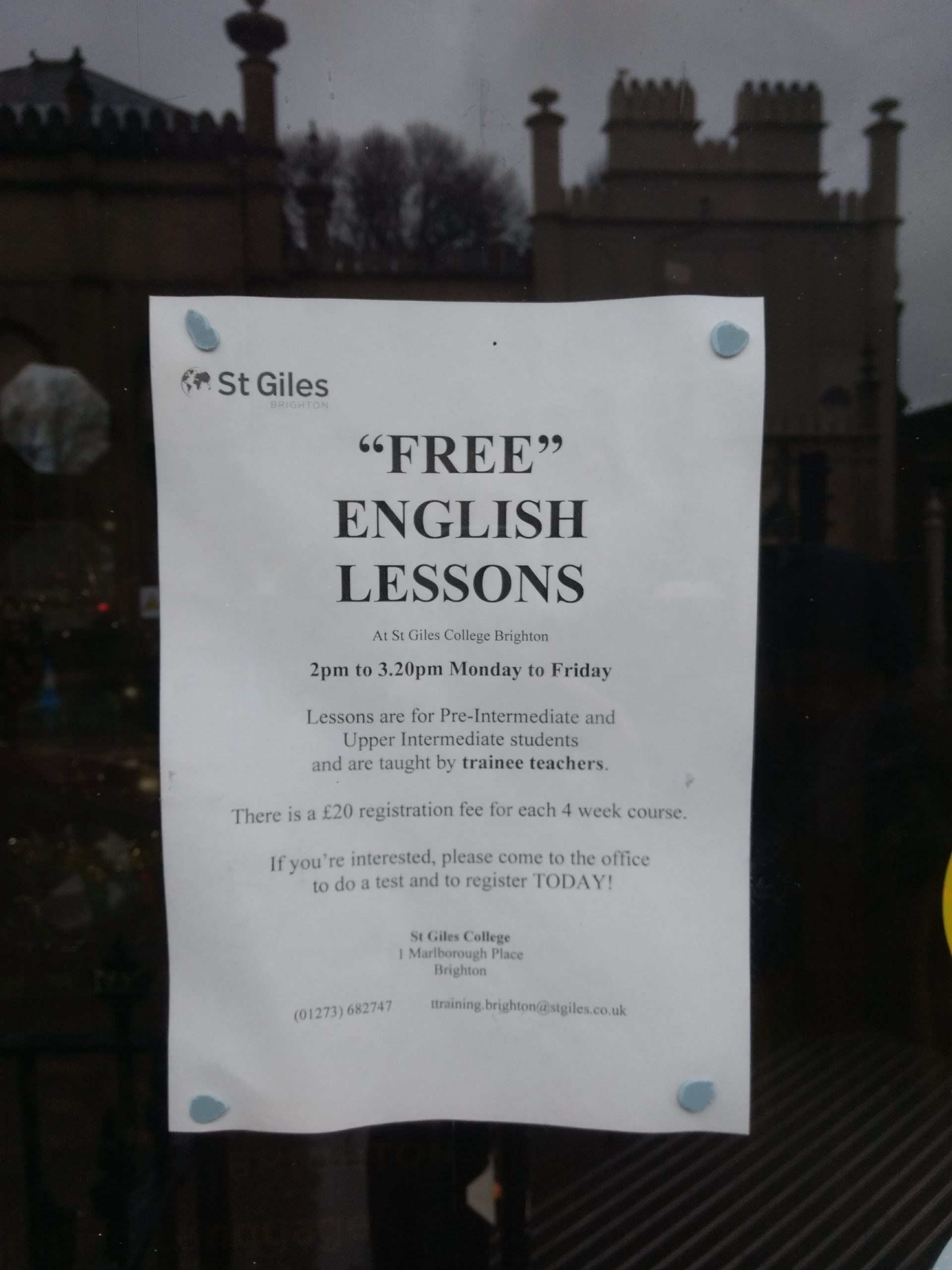
“Free”
London, 2018
Caution/Escape
London, 2018
This is one of my favourite photos of this collection. There is an animosity in these objects, while laying flat on the floor of a tube station in London. It is as if the cleaner followed the person that dropped the coffee to an unknown direction.
Stop Work
Kensignton, London, 2018
That photo was taken on a weekday morning. Because of works, people are temporarily stopped from going to their work. Ironically, the person who never stops working is the person holding the sign. Perhaps by weaving it up and down he is trying to pass an anti-work message.
Power (cut) to the People
Brixton, London, 2018
The other day a power cut happened to a supermarket I was into. It was a weird experience, one of the things that you don’t expect to happen in a commercial place of a western capital. People immediately started looking around, trying to make sense of the incident. There was something reassuring in making eye contact with people, instead of shampoos and dog food. Needless to say, many speculative scenarios crossed my mind, from zombie apocalypse to the consequences of climate change. The lights came back to wake me up and ground me to the reality of the power generator. Wondering if in addition to fire safety, we should start training in power cuts too. Even if it is for starting seeing each other. This photo is from another supermarket with similar issues, in Brixton, London.
Sorry Sir
Kensignton, London, 2018
That photo was taken on a weekday morning. Because of works, people are temporarily stopped from going to their work. Ironically, the person who never stops working is the person holding Sir Robert McAlpine apologise sfor the incoicne caused to pedestrians by construction works at the Royal Albert Hall, and asks them to use an alternative route. The company is one of the biggest players of the UK construction, petrochemical, water and mining industries. On 2016, Sir Robert McAlpine and other companies had to pay £75 in an out-of-court settlement with 771 victims of blacklisting, that kept them out of work about more than two decades because they were deemed leftwing or troublesome. The companies were also blamed for trying to eliminate evidence and cover the case up. It seems that they opt for alternative routes in general.
Fast Track
Edinburgh Airport, London, 2018
People queuing in front of a Ryan Air kiosk to purchase fast track services to avoid the queues. But one cannot really avoid the queues. At best, what these people buy is the right to stand at the head of it.
Post-human
Kensignton, London, 2018
At a point, this self-service kiosk stops the process and calls a postal worker to carry on. A machine that knows its limitations.
Work.Work.
Hackney, London, 2018
In the Dictionary of Work, I defined a co-working space as “a place where you pay to work individually alongside others. Provides state-of-the-art sockets”.
Machine Parade
Victoria Station, London, 2018
Caught in the Act
Ealing Broadway, London, 2018
These screenified taps were in a toilet in Ealing Broadway. Advertisement is literally a step away from entering the most private of spaces.
Matrix
On the way to Lille, 2018
Charging cables hanging from room-mounted USB ports construct a scene taken out from the Matrix films. The coach is a pod in which unconscious humans are generating bioelectric energy for the machines, while sleeping.
“Insert two 10p pieces”
Uxbridge Station, London, 2019
The use of cigarette vending machines in the UK was banned on 2011. The Department of Health said the ban had been introduced to support adults who were trying to quit and to prevent under-age sales to children. Wondering if, in the age of algorithmic surveillance, we will see them again.
Born to Golf
London, 2019
Technician in a London-based design university. The advent of digital fabrication (3D printed, laser cutting, CNC) has created the impression that their role is obsolete. Roles might have shifted, but this is far from truth. I vividly remember a technician at the Royal College of Art skilfully (and proudly) programming and supervising a massive seven-axis CNC robot. The RCA hosts the annual event Hidden, an exhibition that celebrates the creativity and skills of these people.
Night Ride
London, 2019
Pay My Money
Kensal Rise, London, 2019
Free Water
Victoria Station London, 2019
Coming from a Mediterranean country, I still find the limited access to free tap water in the UK bizarre. Licensed premises (pubs, bars, cafes, etc) in England and Wales are required by law to provide “free potable water” to their customers upon request. They can however charge people for the use of a glass – or their service – when serving the “free” tap water. In response, overbranded water fountains pop up in public spaces, and stores advertise their truly free water. These in theory should alleviate, but in reality they amplify my bizarre feeling.
Mr & Mrs
Earlsfield, London, 2019
I came across these two stores while on the way to a storage space with a moving van (I have written up this story here). I stroke me that instead of the characterless chain stores, we could have shops with distinct personalities which however relate to each other.
Full Time Income
Limehouse, London, 2019
12-4
Athens, Greece, 2019
I sent the previous photo to a beloved person in Athens, and she replied by sending me this one. It translates as “12h work, 4h pay”. These two photos capture quite well I think the current state of the political discourse on work in the two countries, and the demands that are tied to each one.
2-7
Bristol, 2019
After moving to Bristol from London, I started noticing different working hour patterns. This is allowed by the relatively large number of small, highly specialised, and/or independent shops, that can open and close based on their particular customer groups, and the mood of their owner. This video game store is close to my first house. It opens for 5 hours a day, 6 days a week.
Unnesecary
Bristol, 2019
Too Much
Bristol, 2019
This bus billboard is part of First’s hiring campaign in Bristol and Bath. Its message emphasises on the precarious working conditions in the food and hospitality sector to lure working people to bus related jobs. The community union Acorn runs a campaign to municipalise local buses, noting that “passenger numbers have plummeted, prices have risen and services have shrunk”. Perhaps chefs and bus drivers could cook something up together and drive change.
R2-CarD2
Lancaster, 2019
A mobile card reader to facilitate the large crowd of students waiting to get on the bus at the university of Lancaster.
“The bus will wait at this stop to even out traffic”
Bristol, 2019
Every time this announcement shows up on the screen of a bus is an exhilarating moment. I guess that for many fellow passengers this pause is annoying and a waste of time, but for me it is one of these rare instances in which more acceleration cannot fix the issue, and we cannot do much but wait. The bus becomes a bug in the whole logic of capitalism.
Repairs
Brixton, 2019
This is the same video game store. The window glass didn’t stand the weight ofthe spanner. I hope they can repair this as well.
Gardenground
London, 2020
No Need for a Robot
London, 2020
This is another favourite photo, taken at the London underground. Robots are not cool for the advertised company, which promises to automate work without them. A mysterious gentleman, with his fedora hat and long overcoat, stands in front of the robot, making the billboard’s robot completely obsolete, and conveying an eerie feeling of surveillance and fauxtomation.
